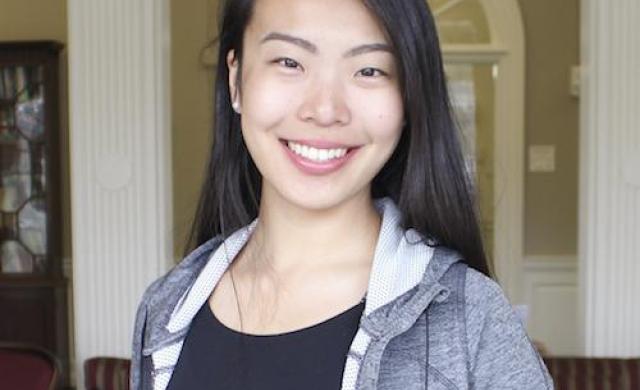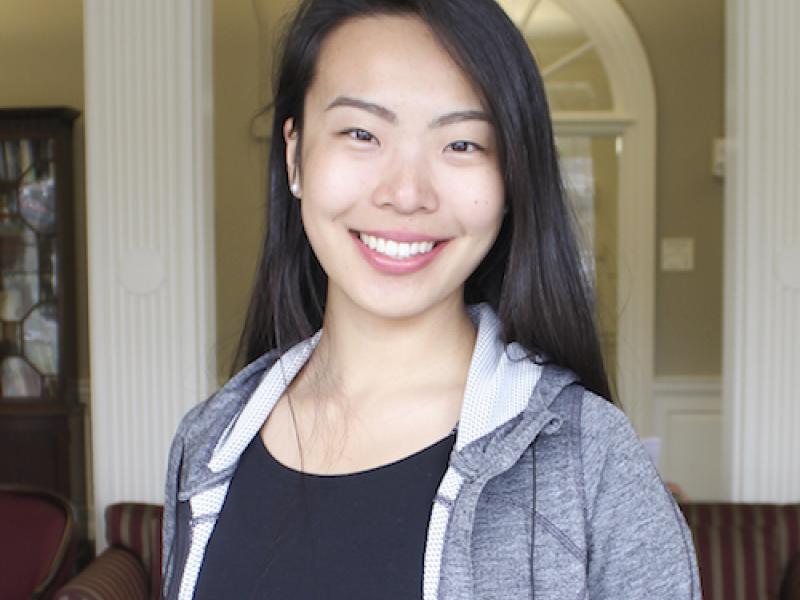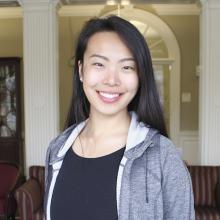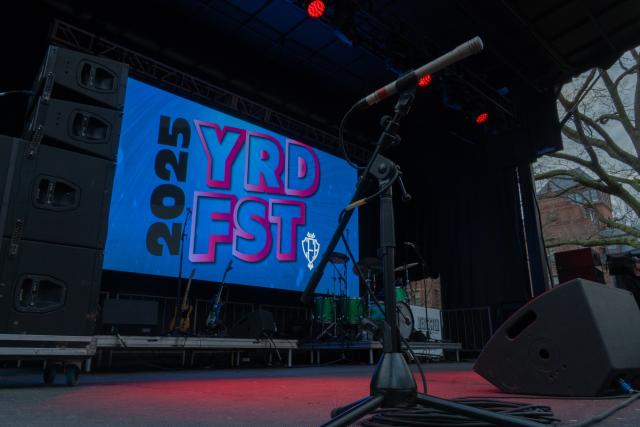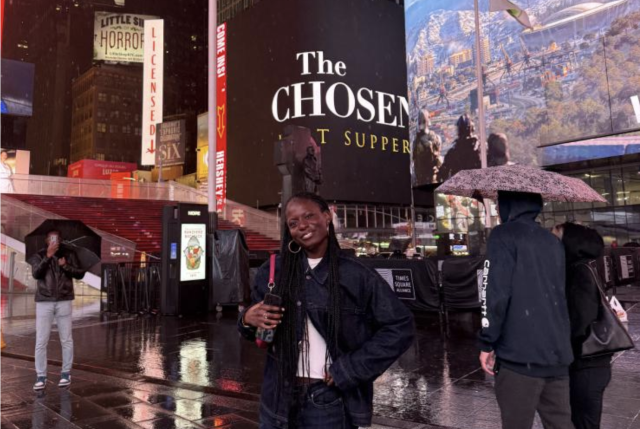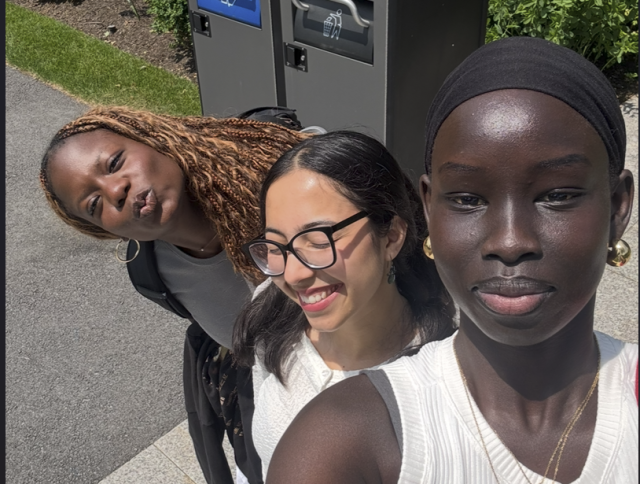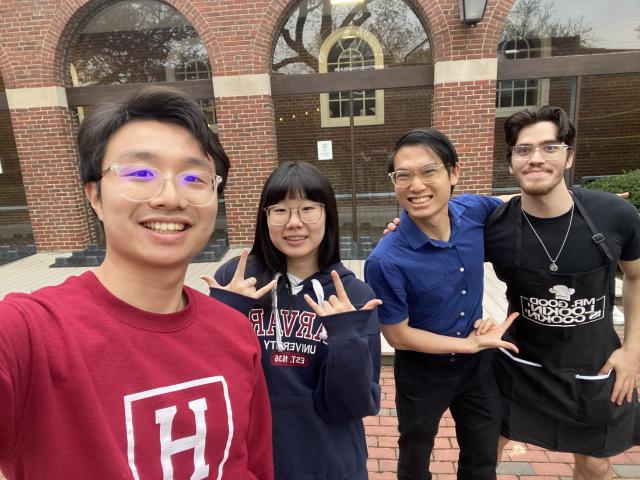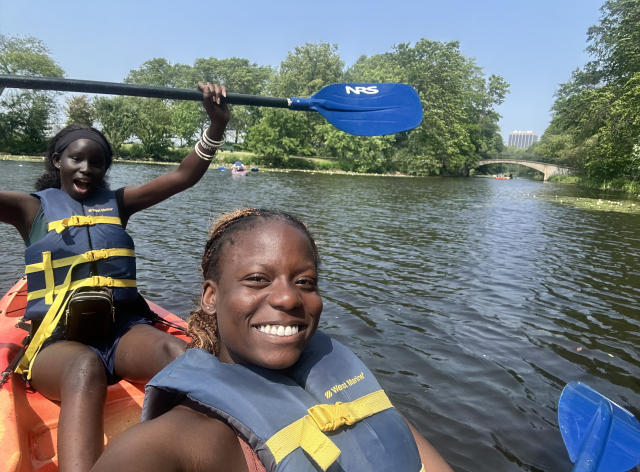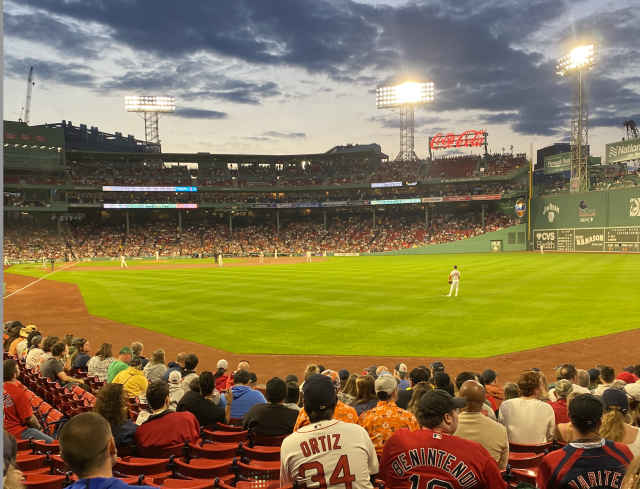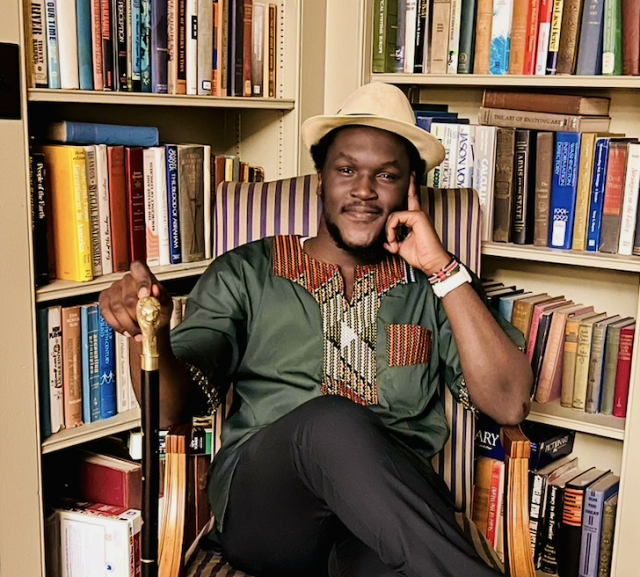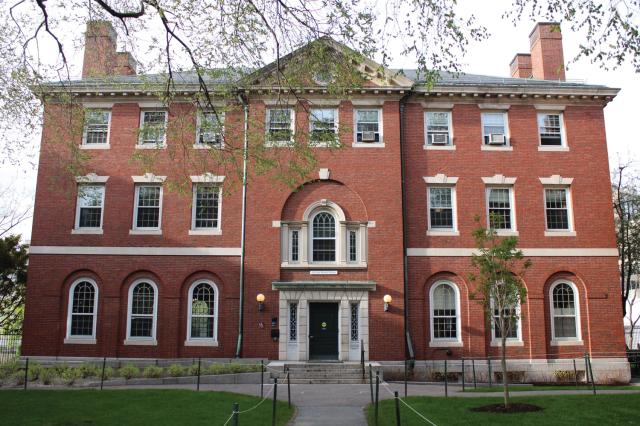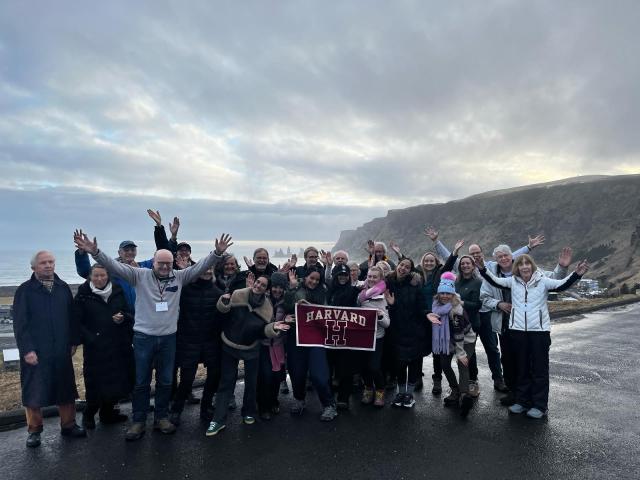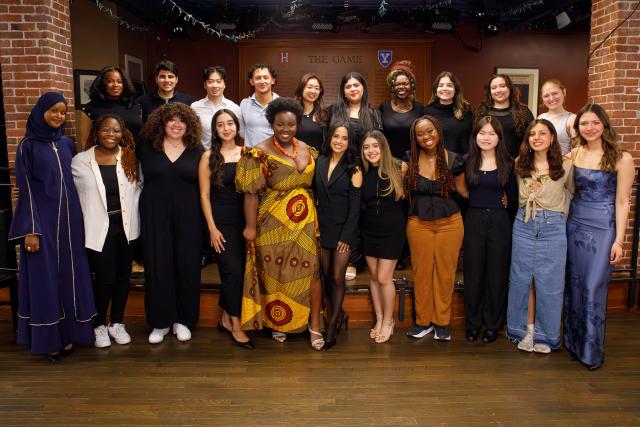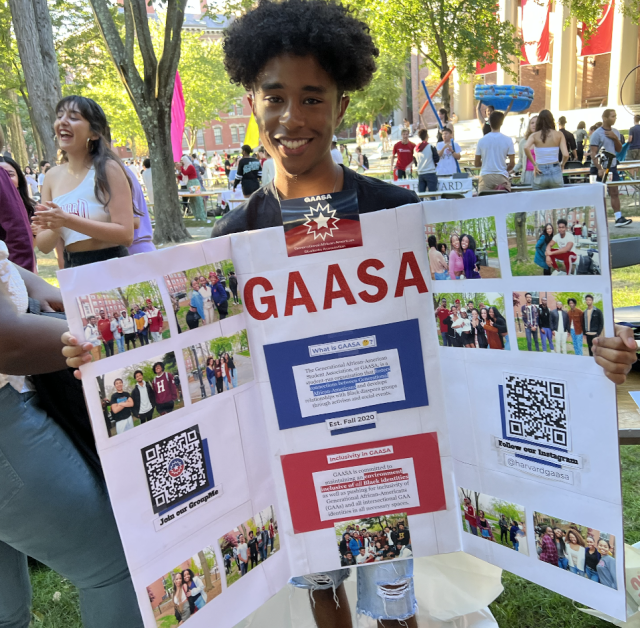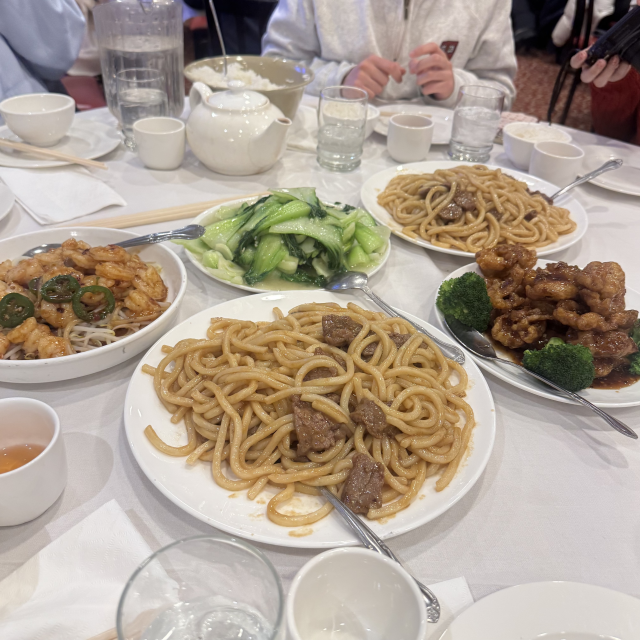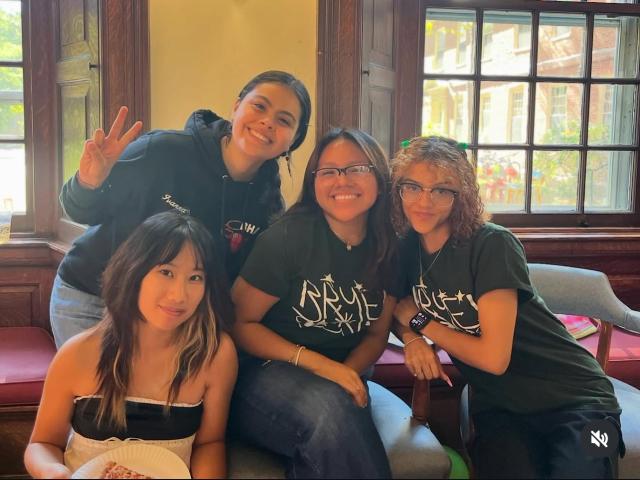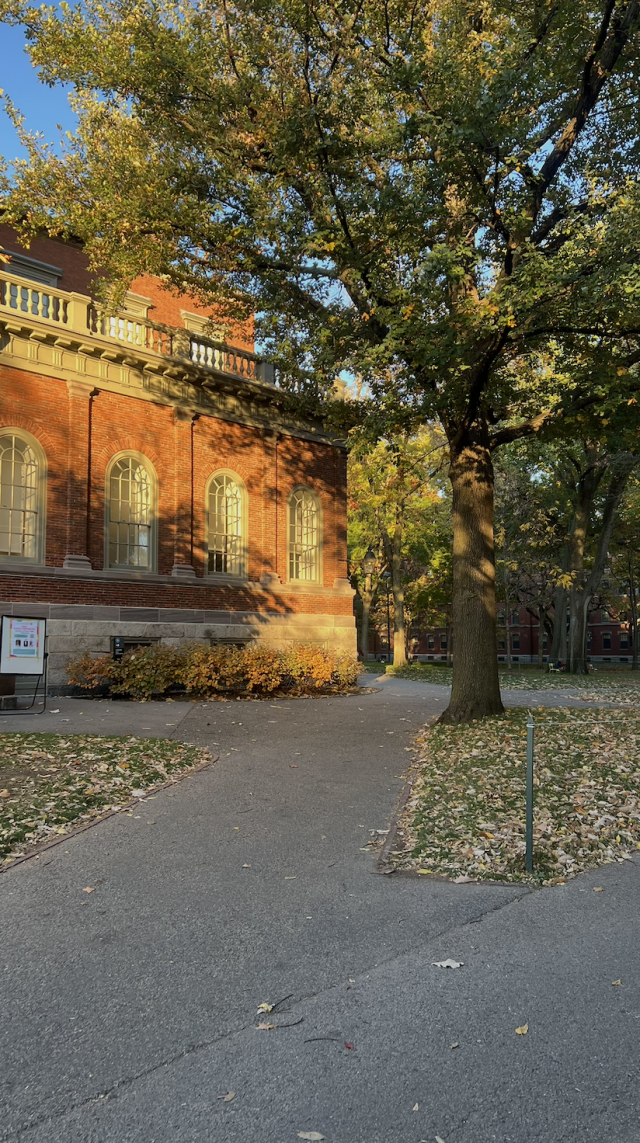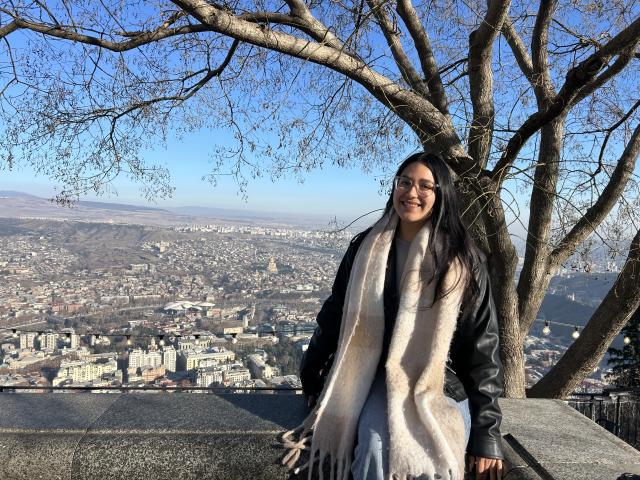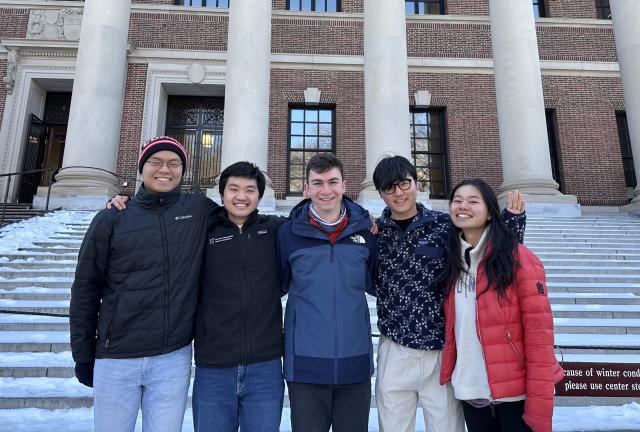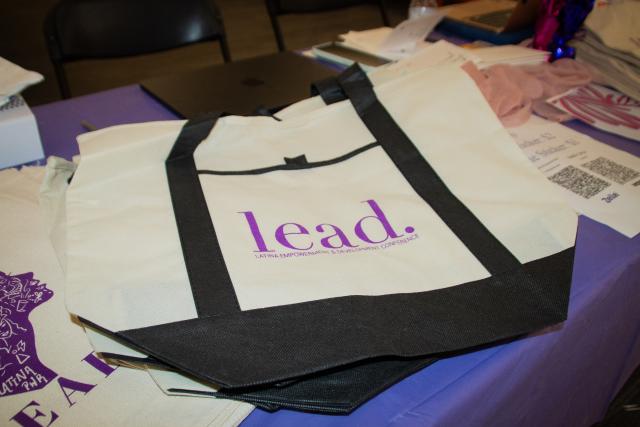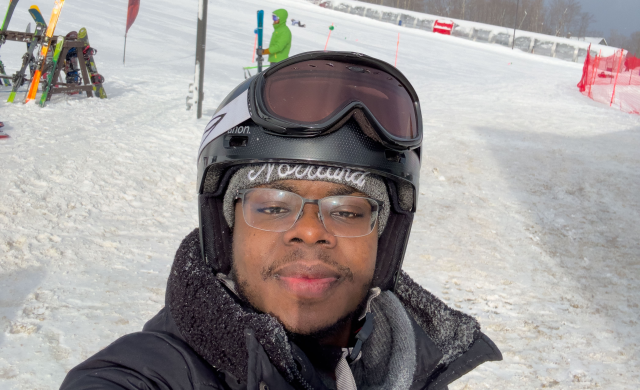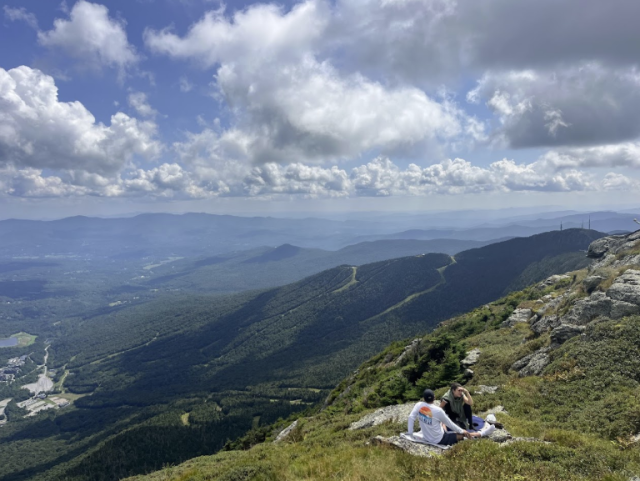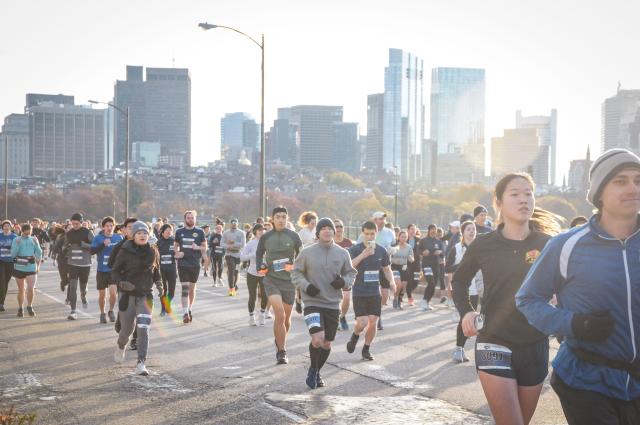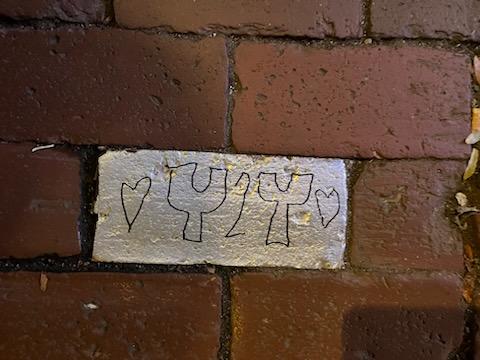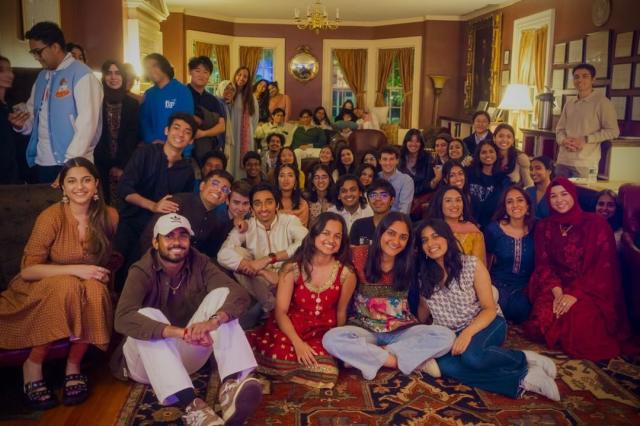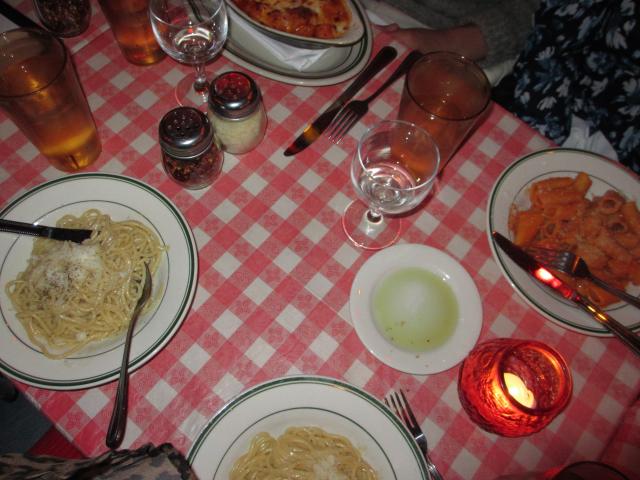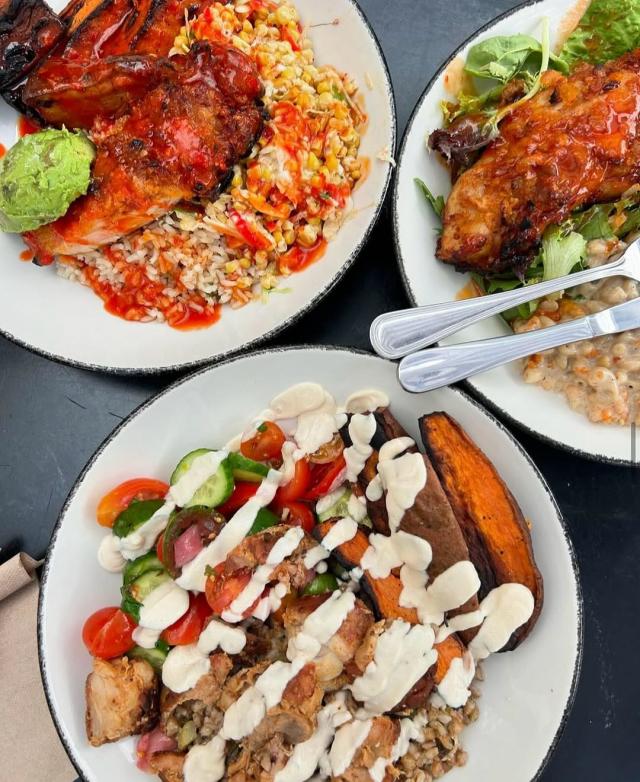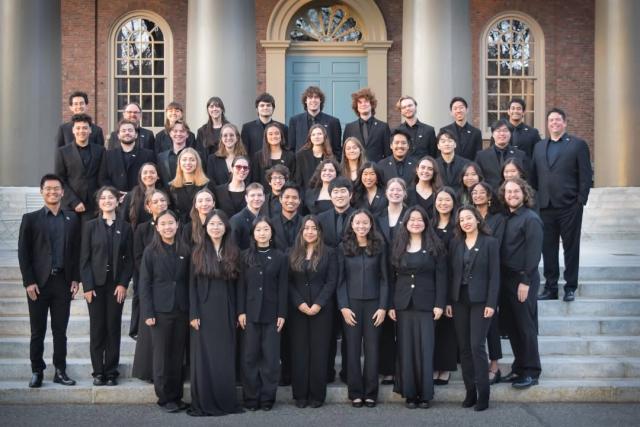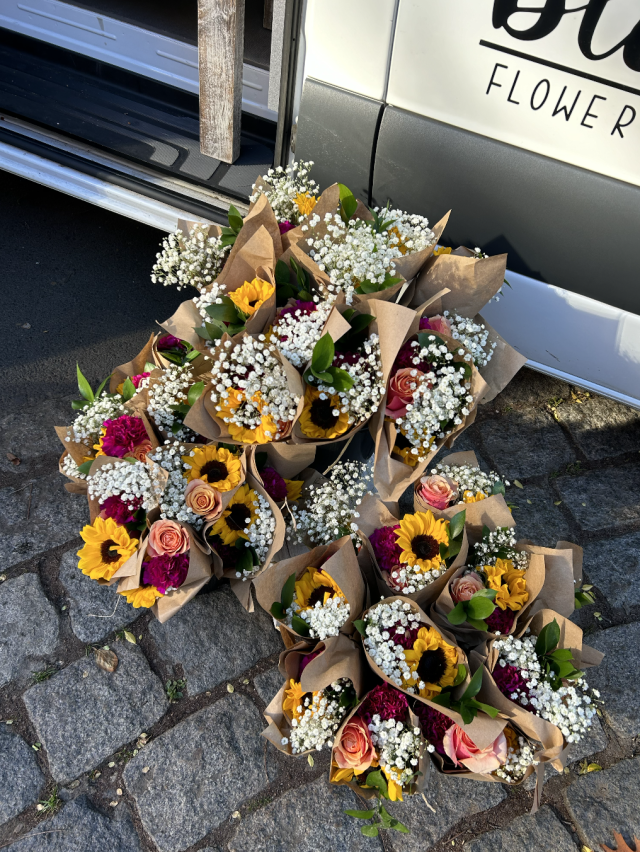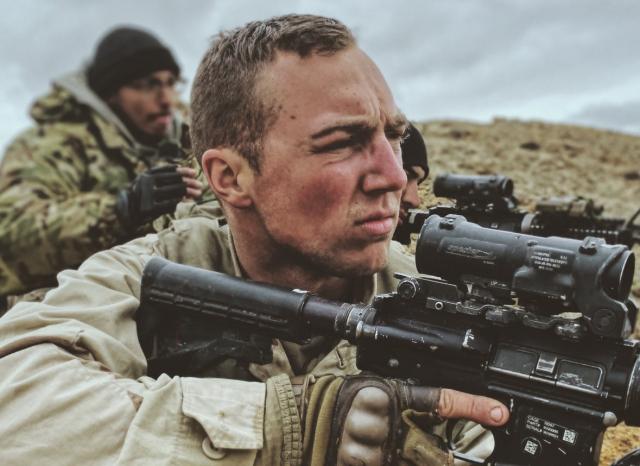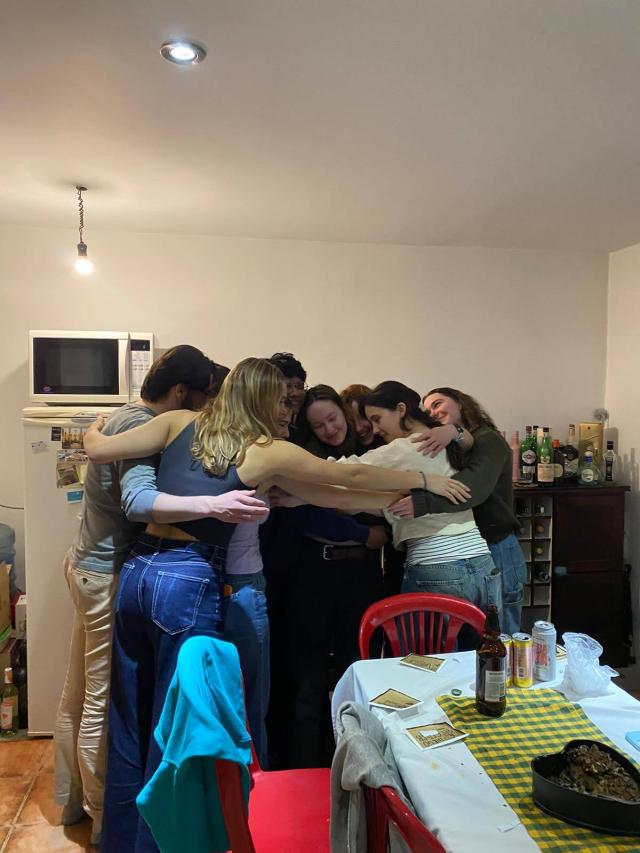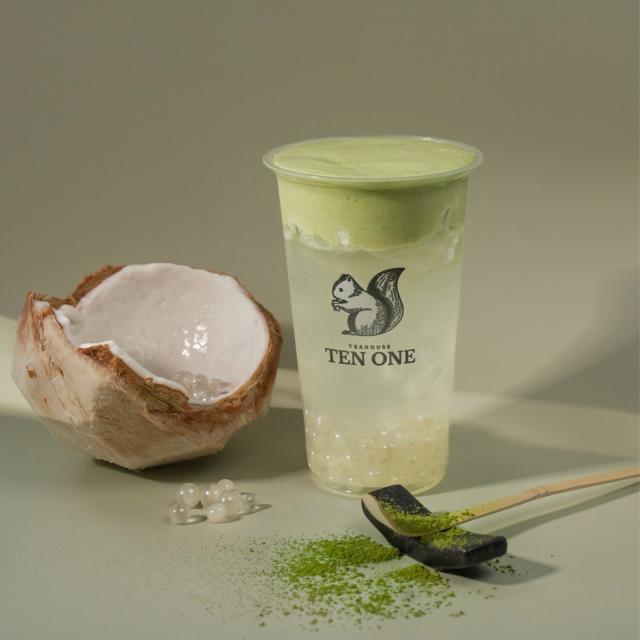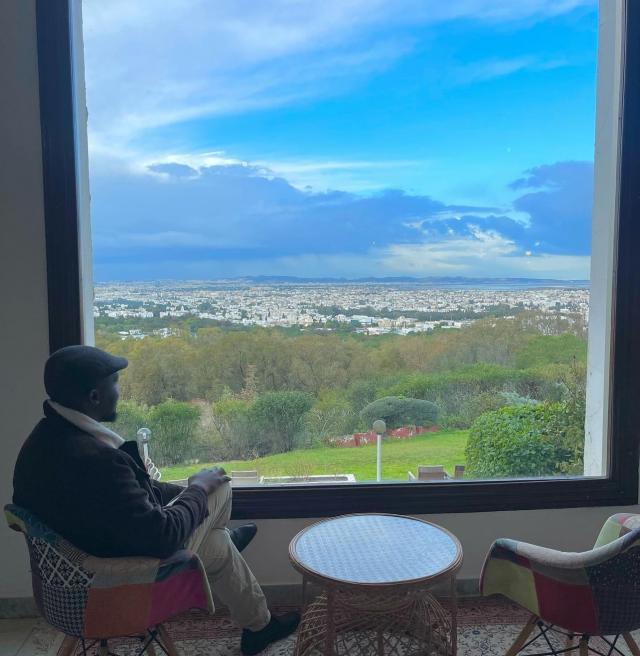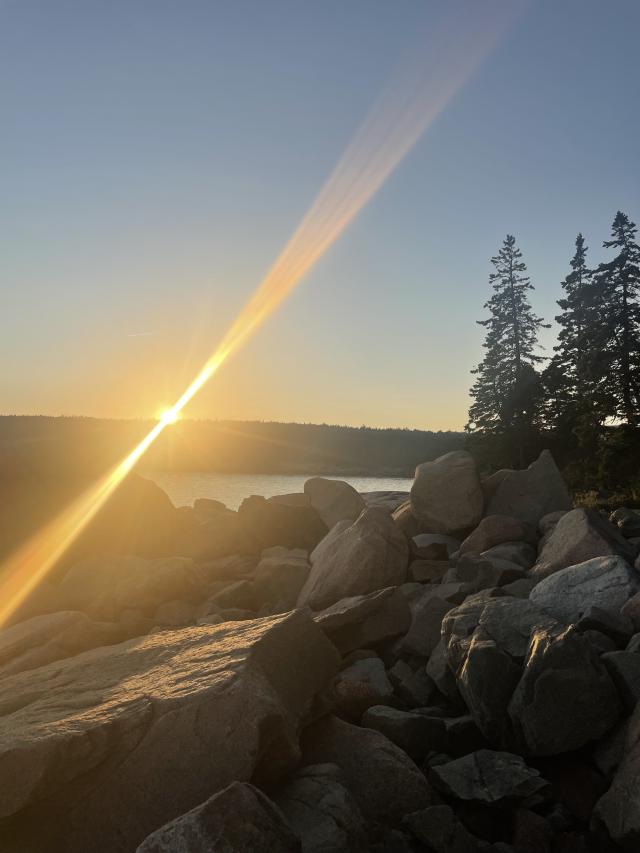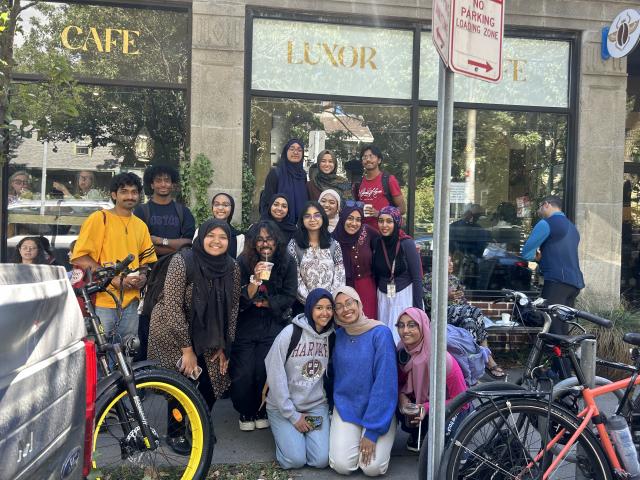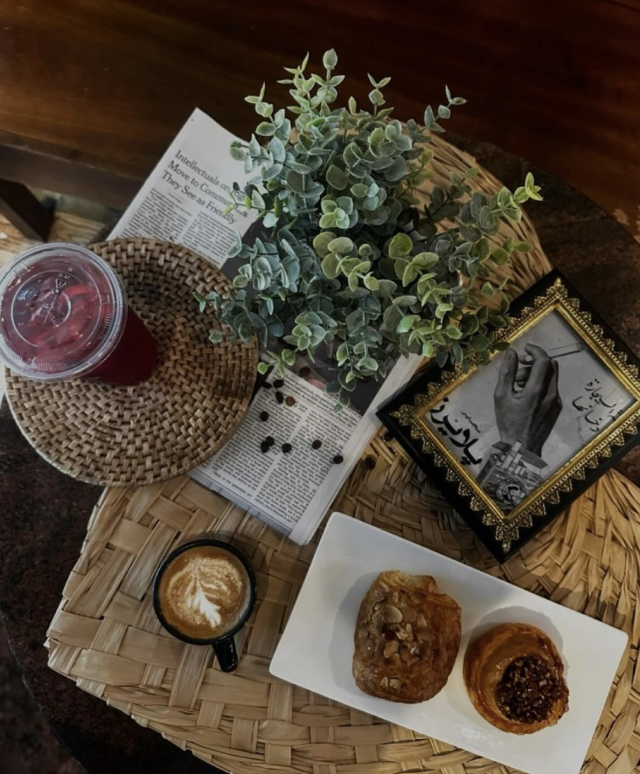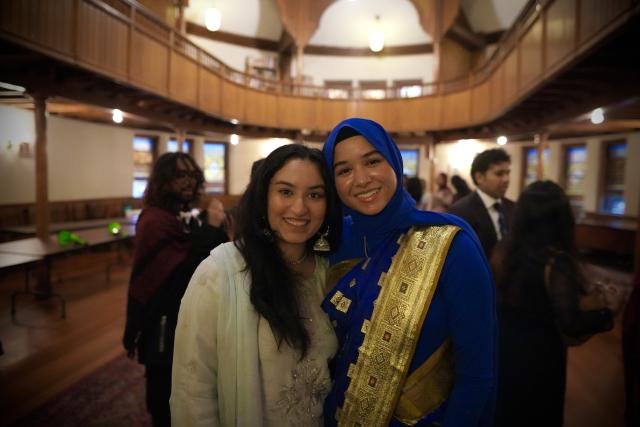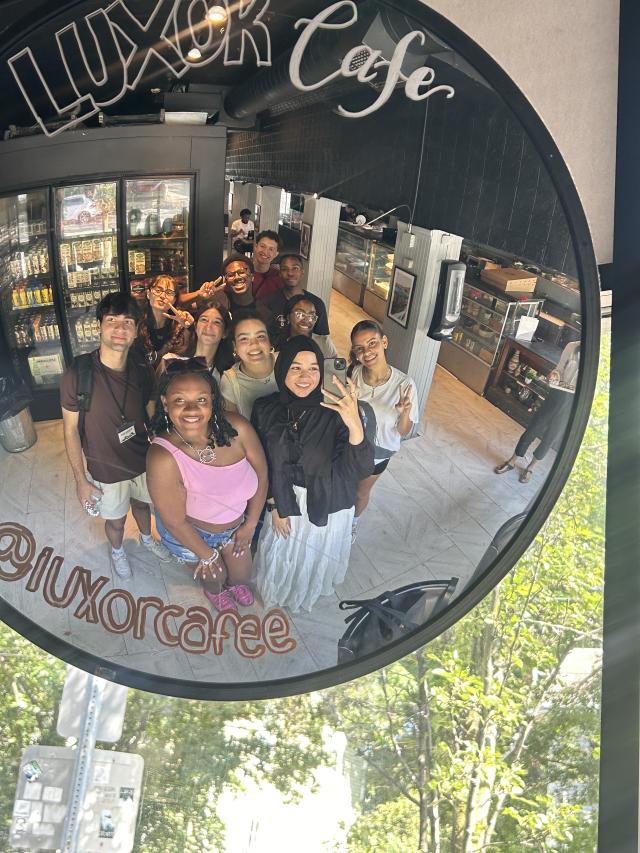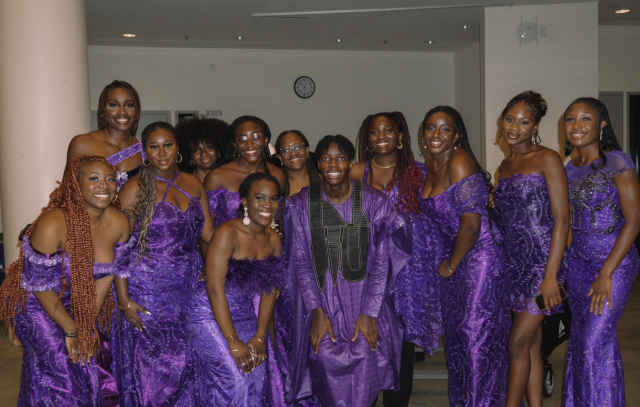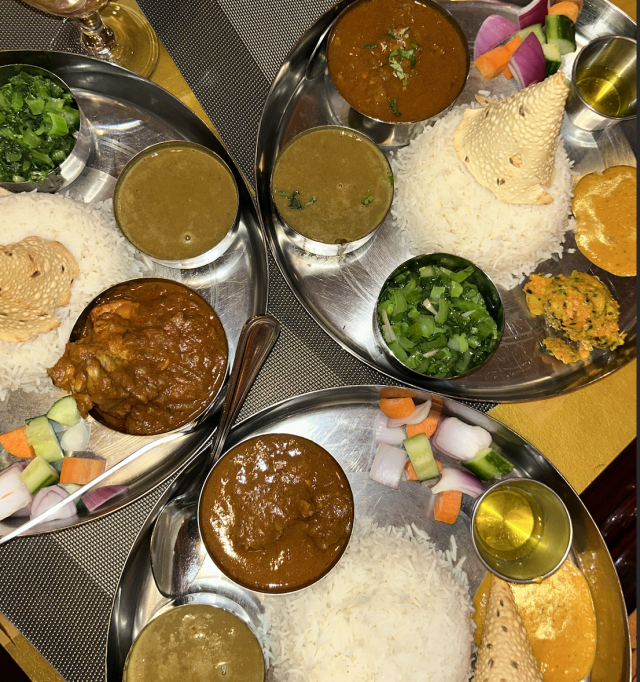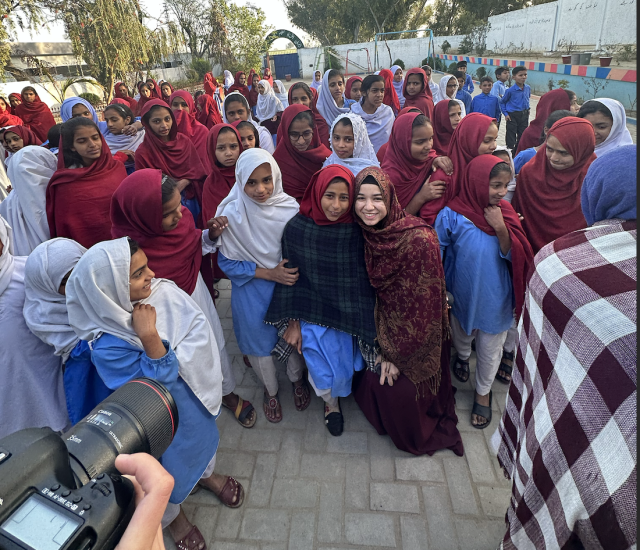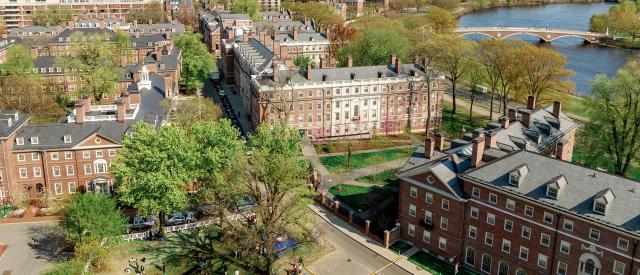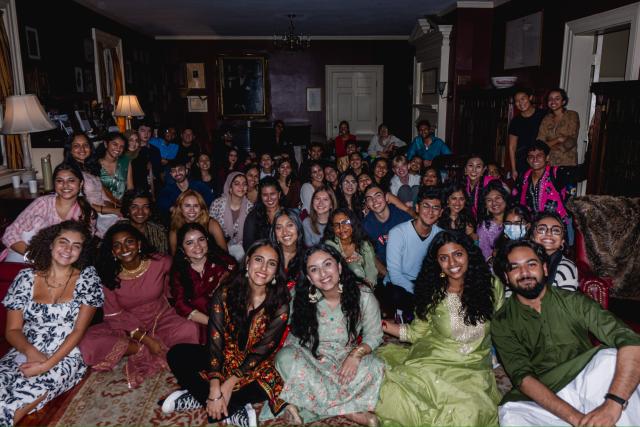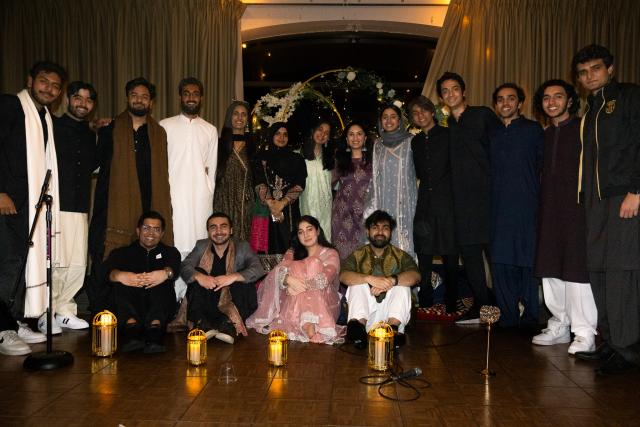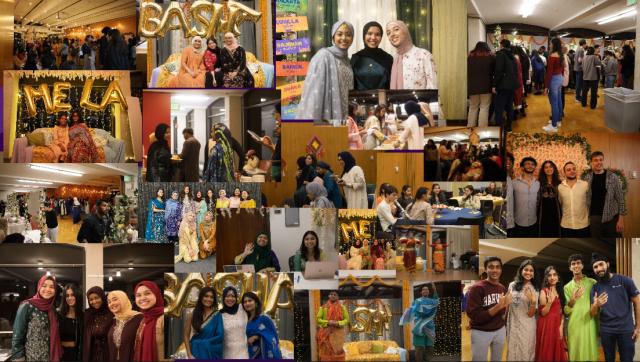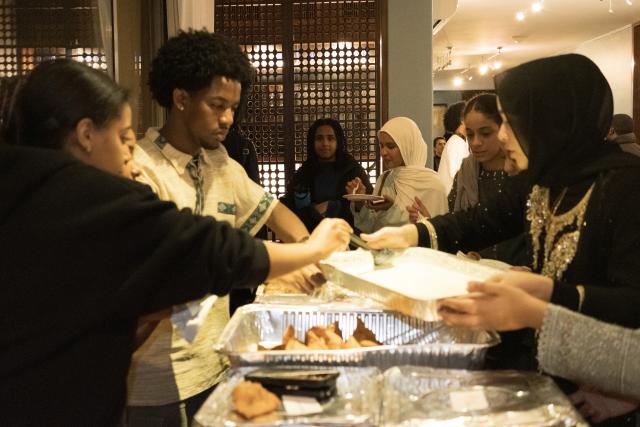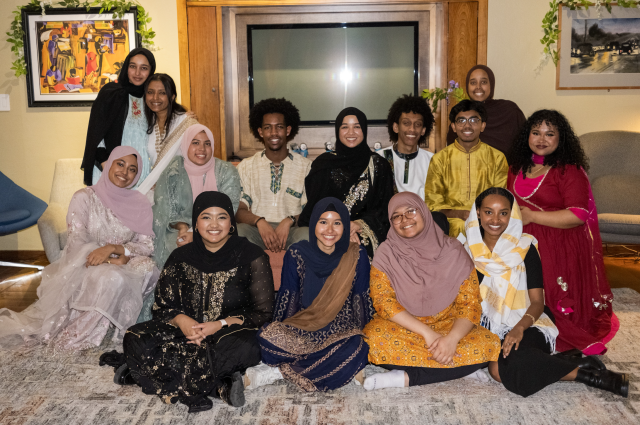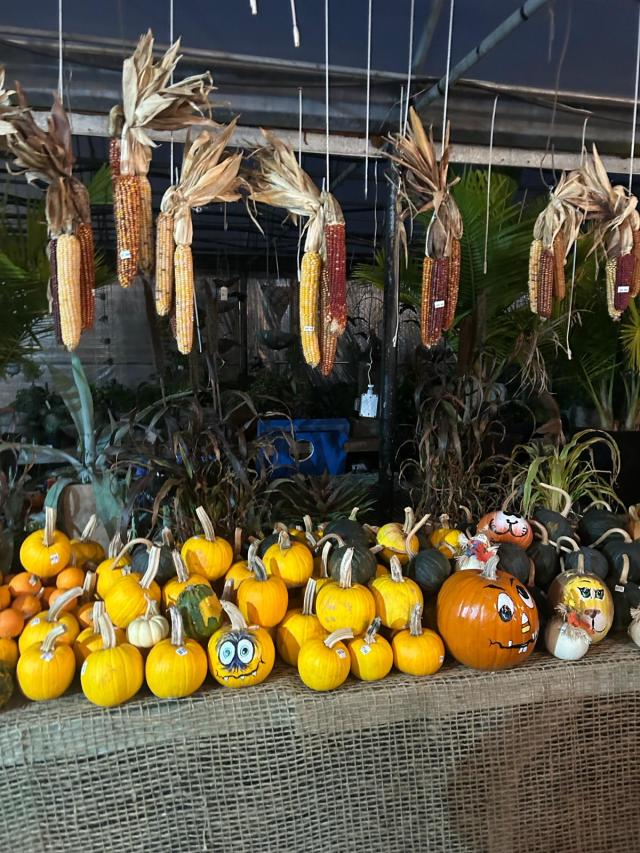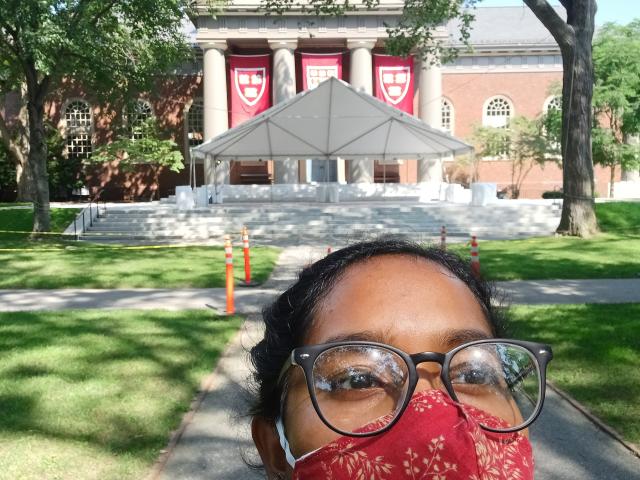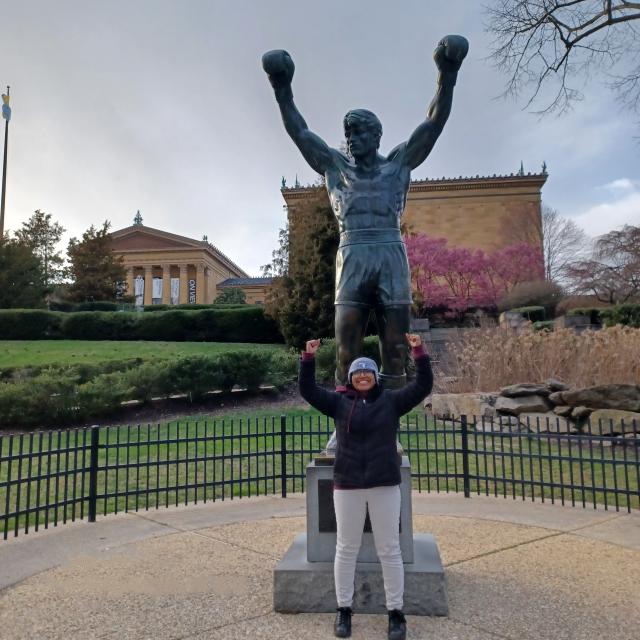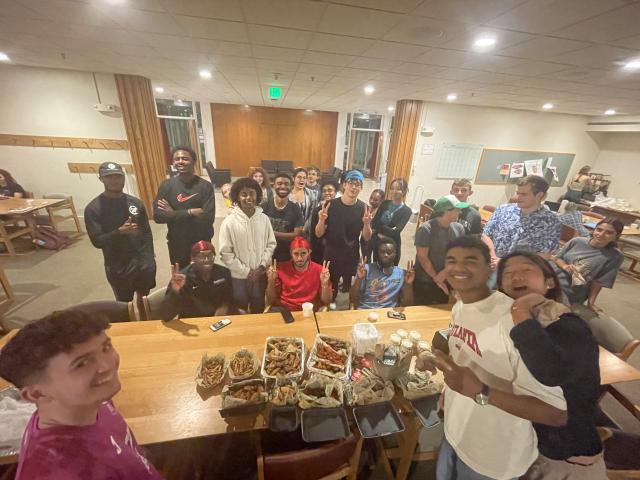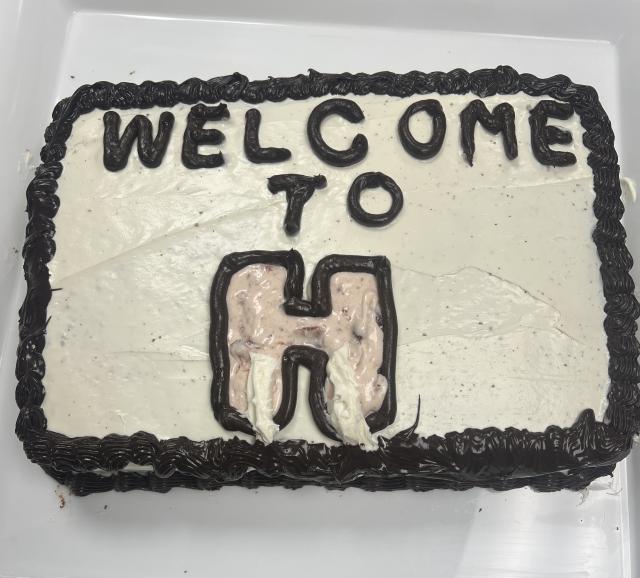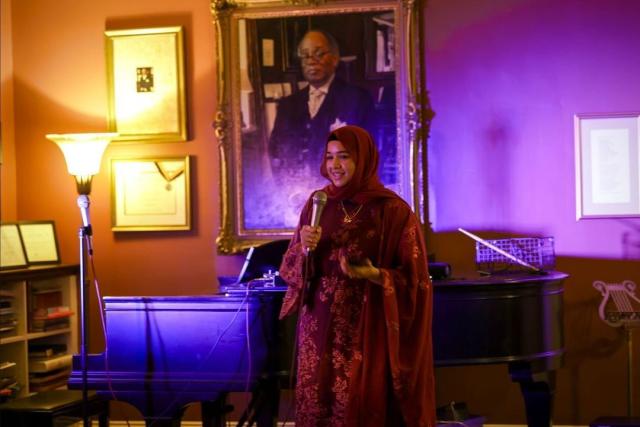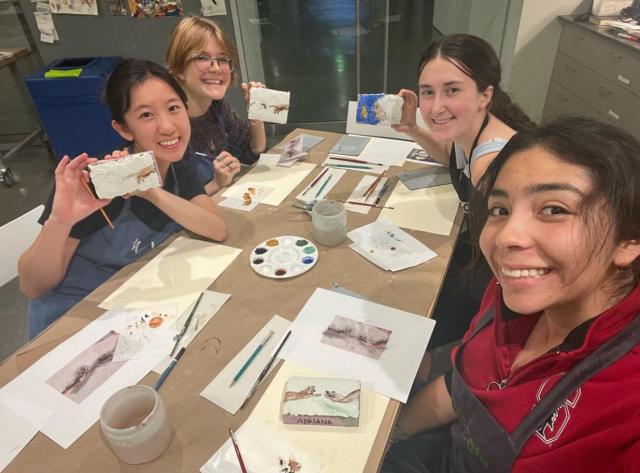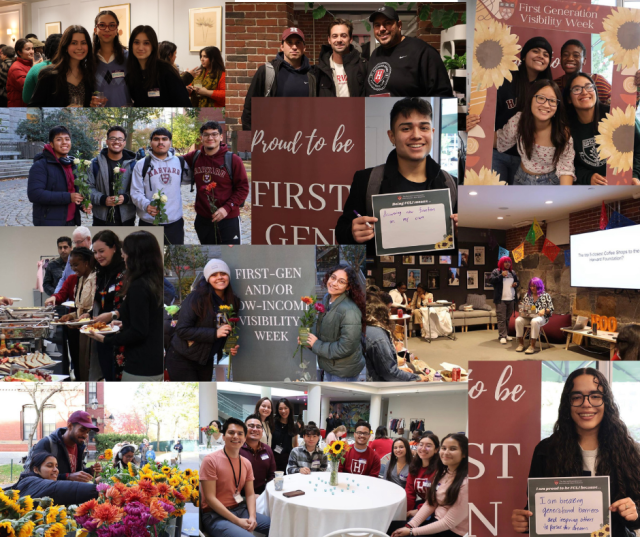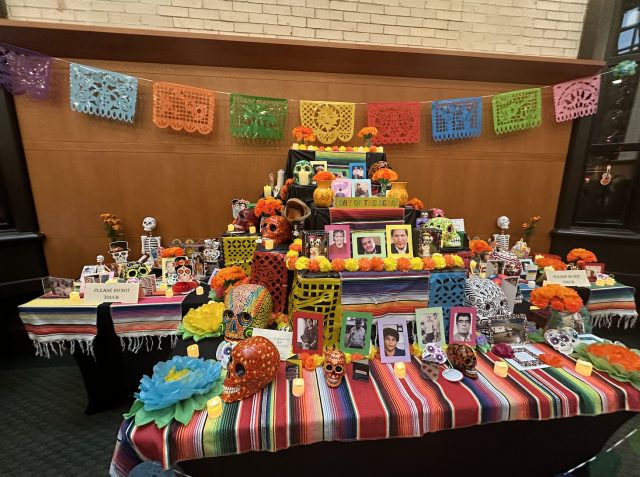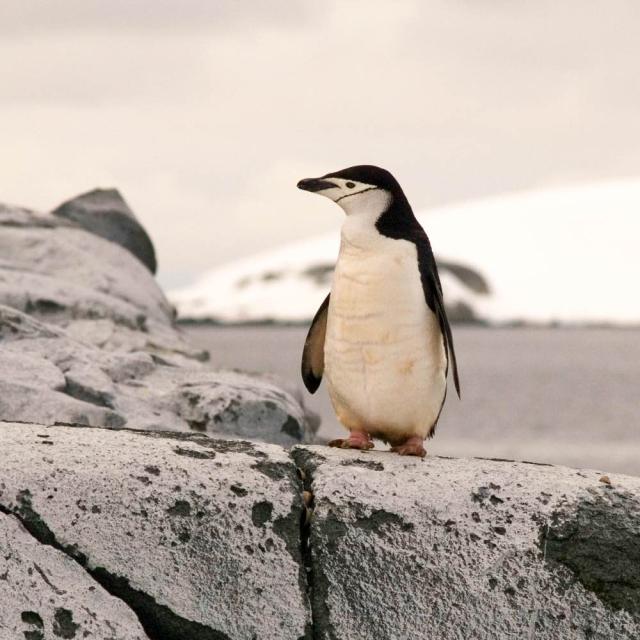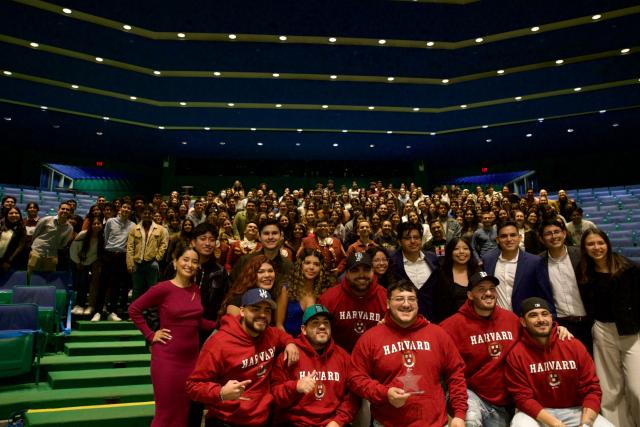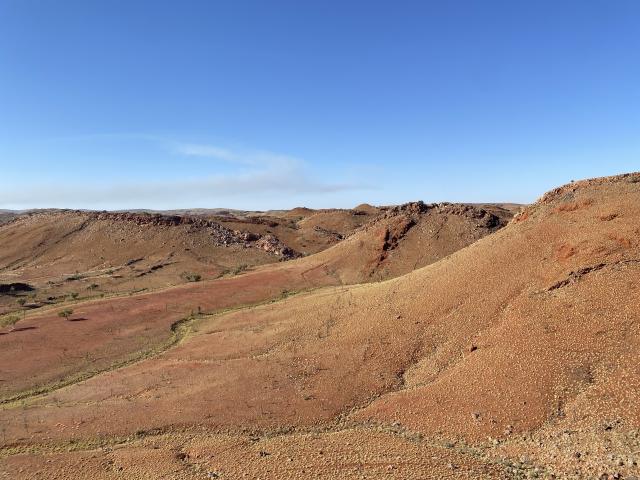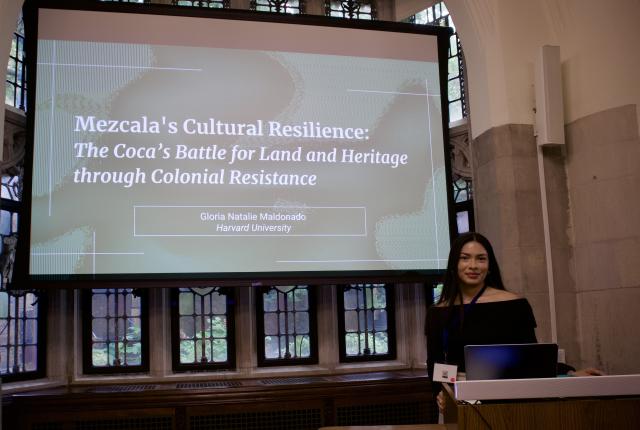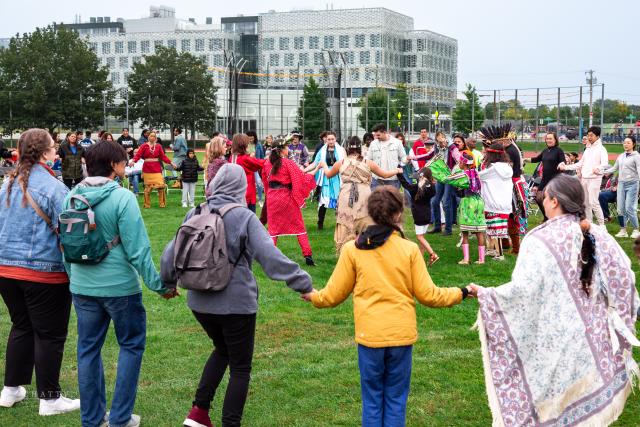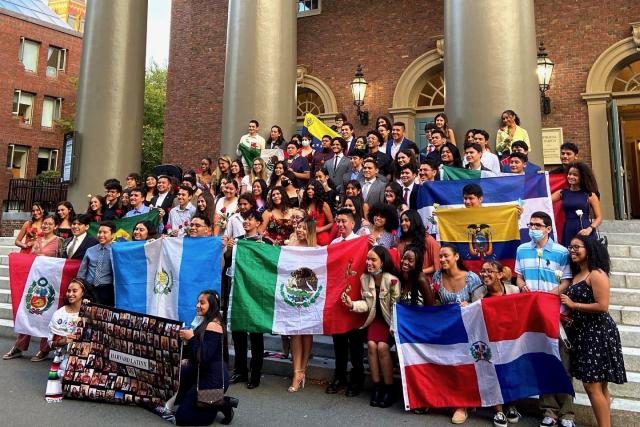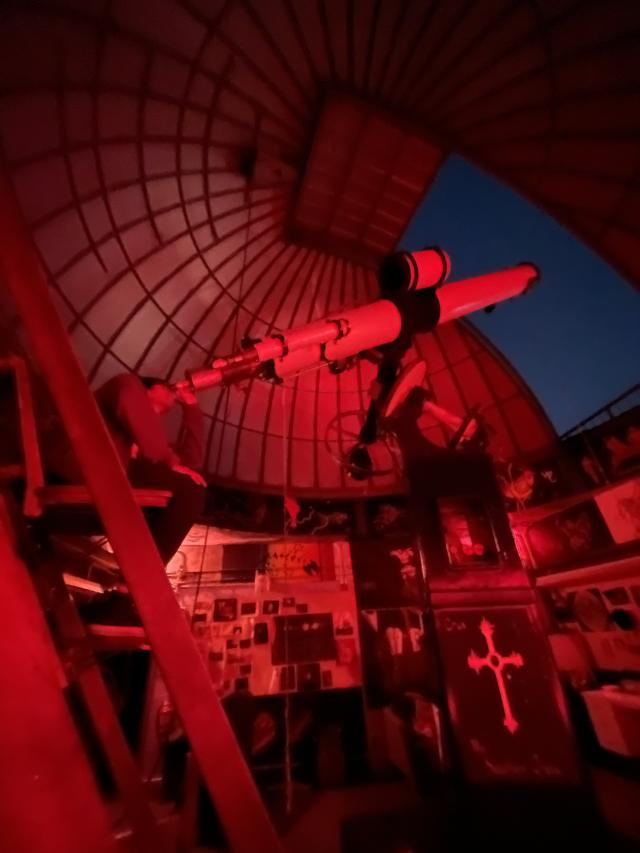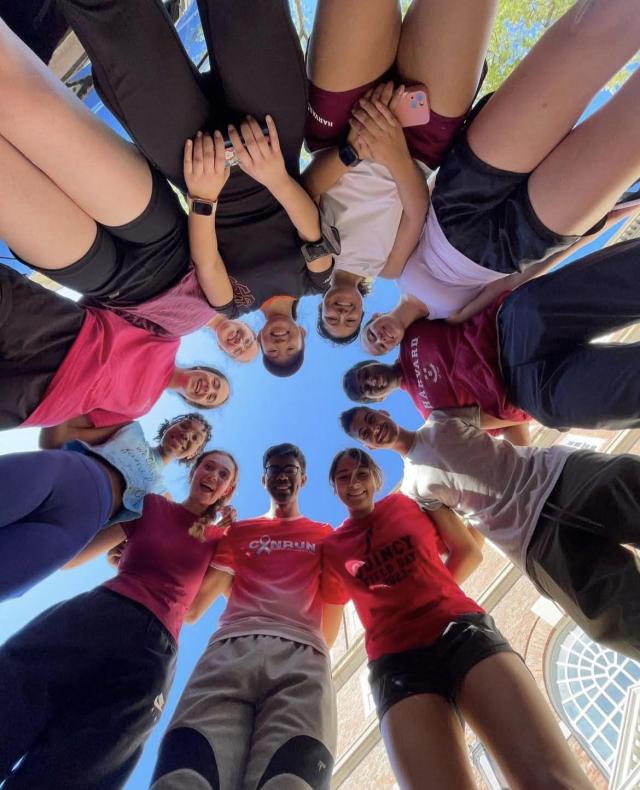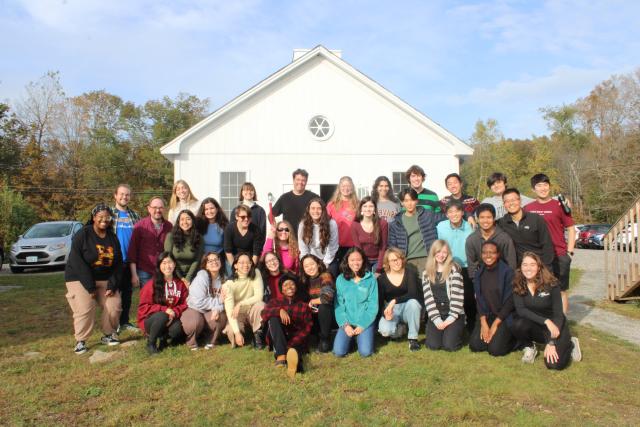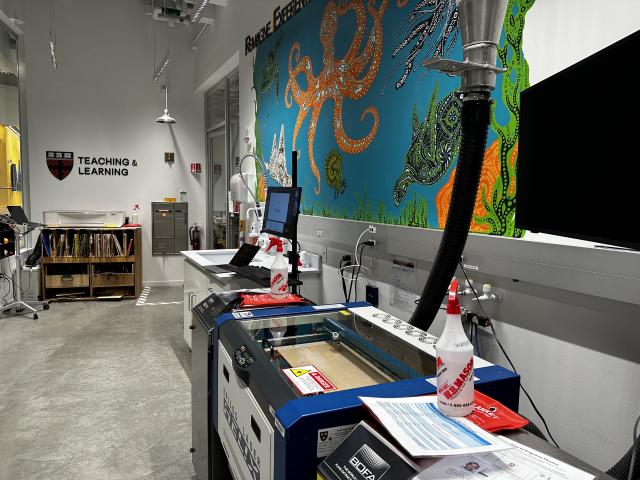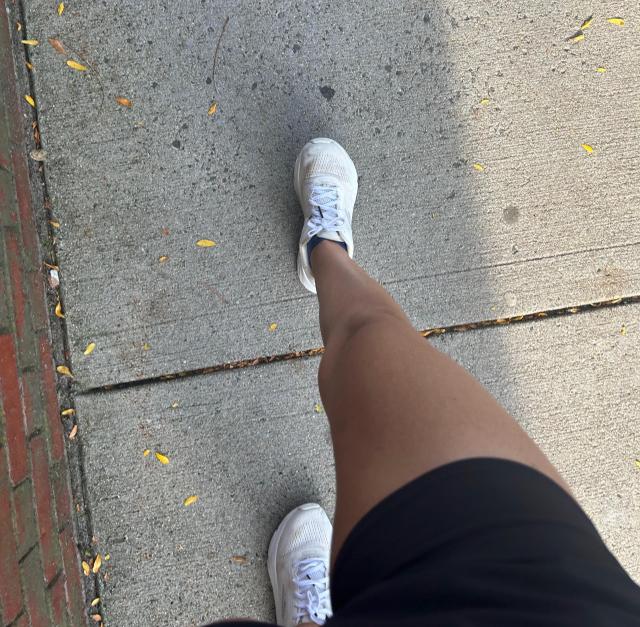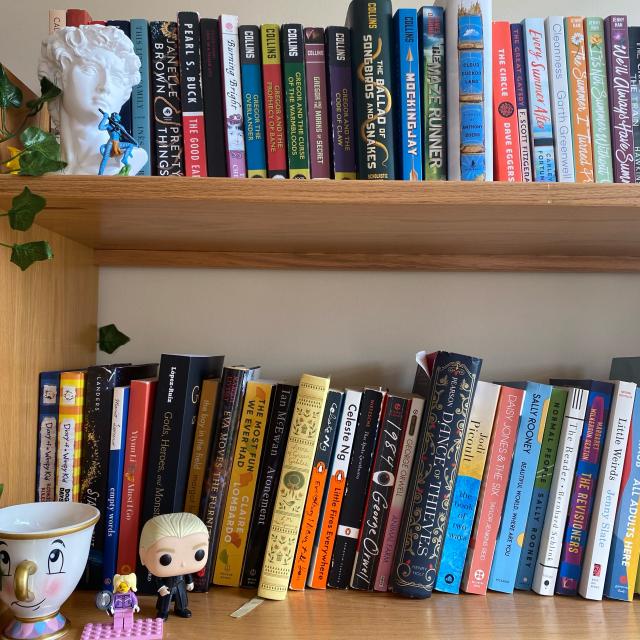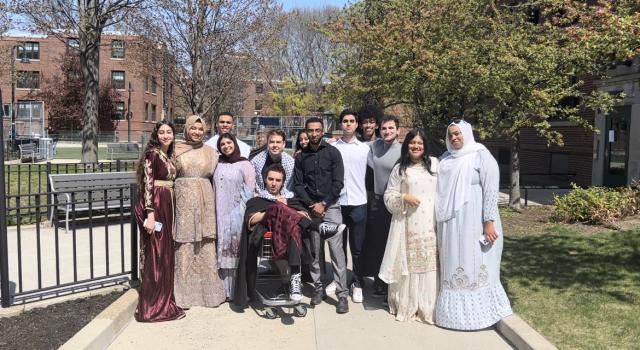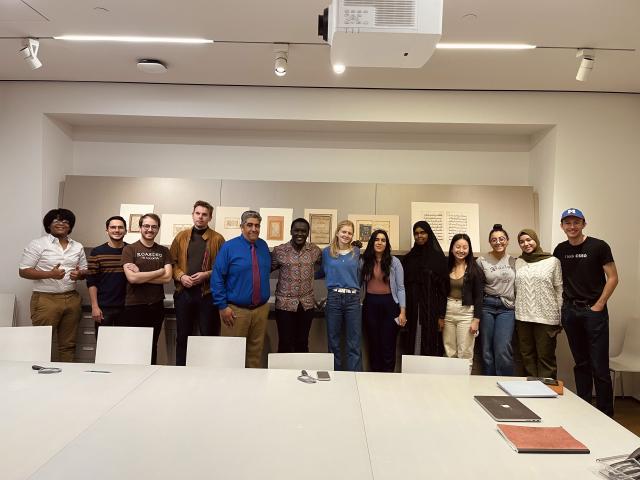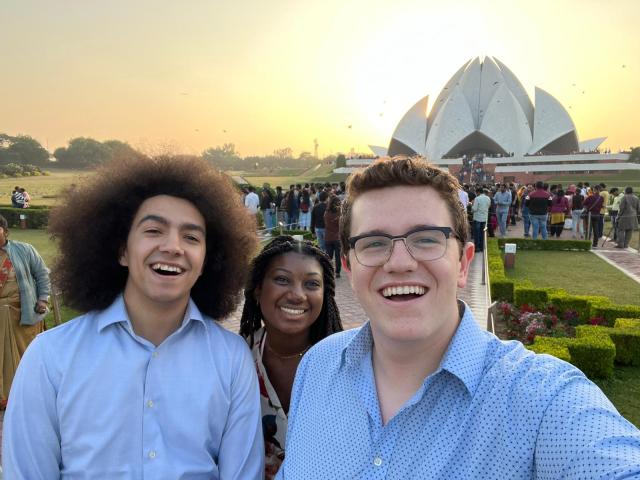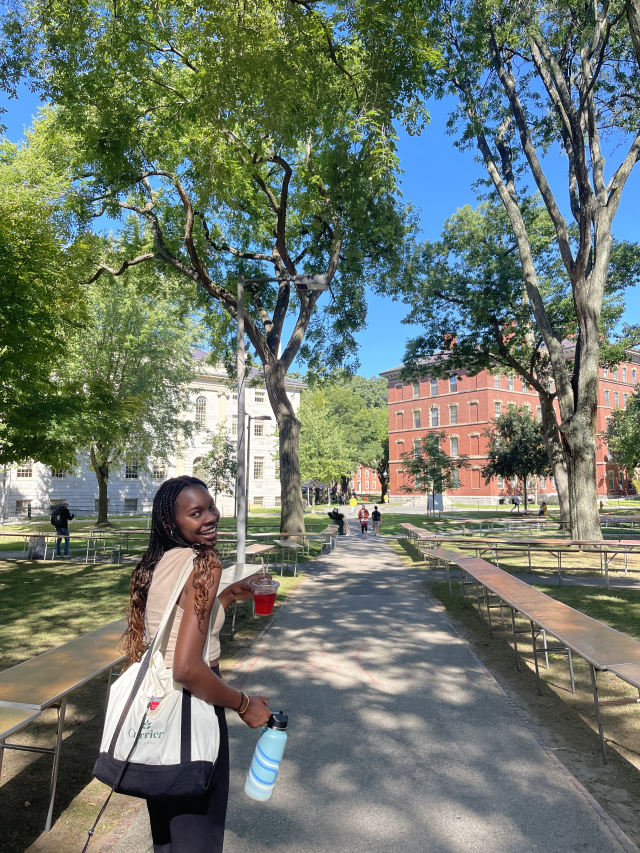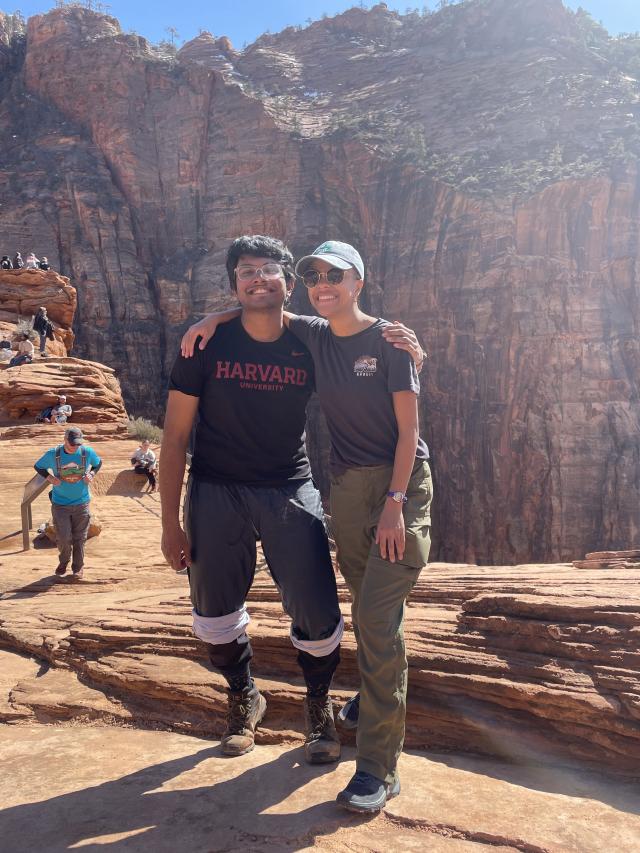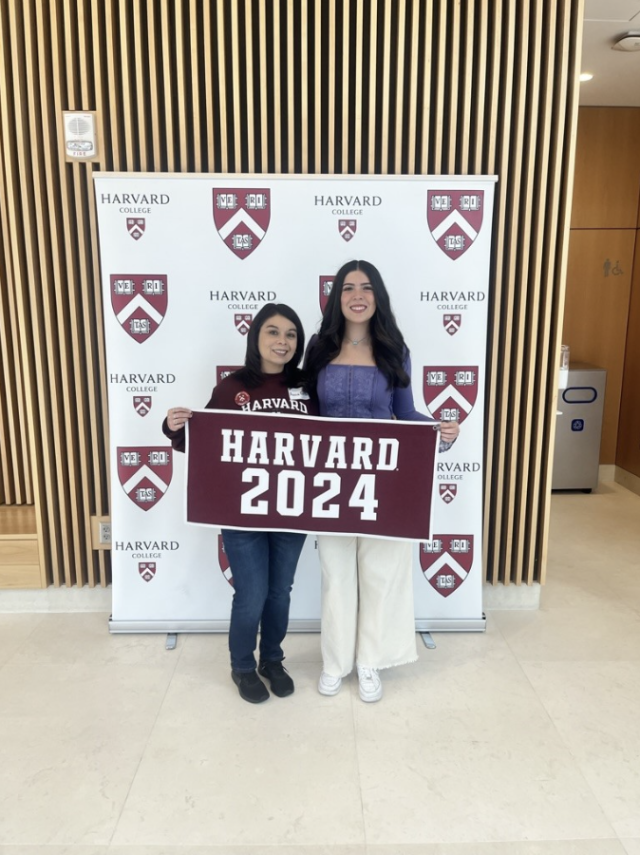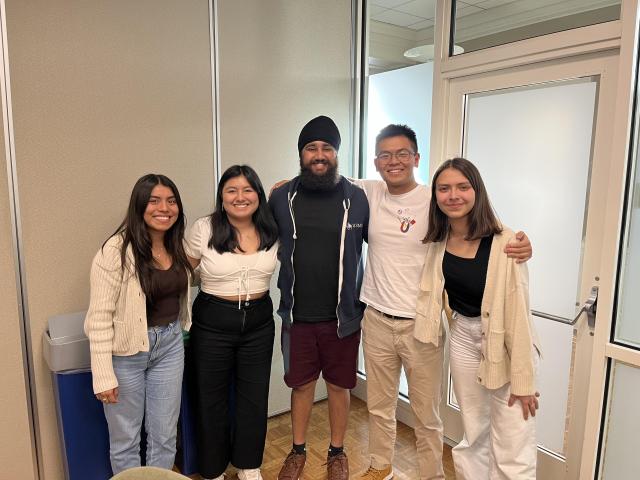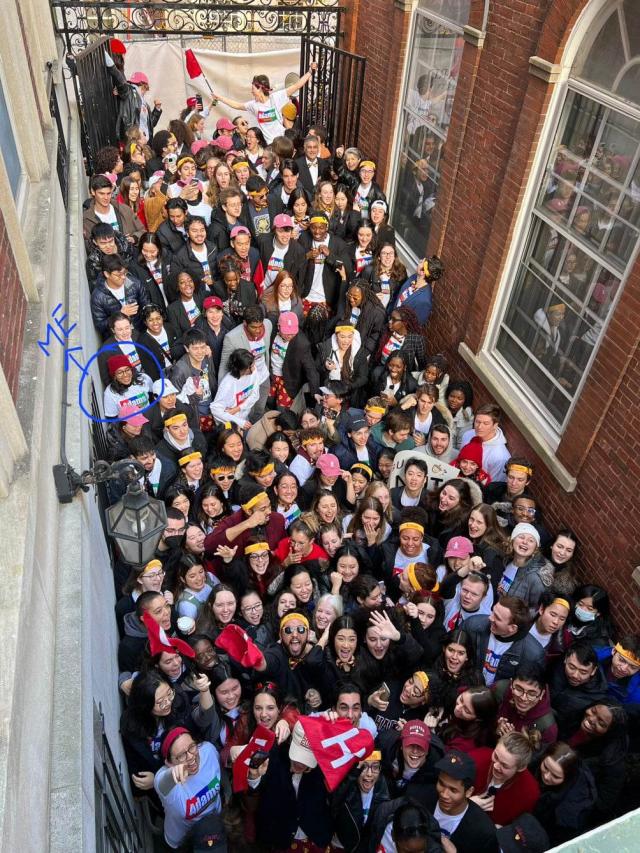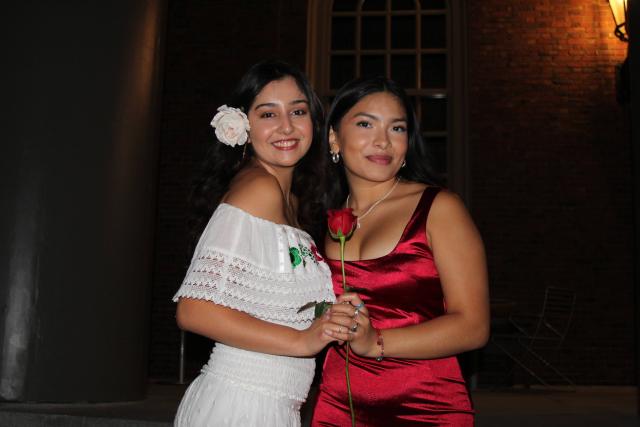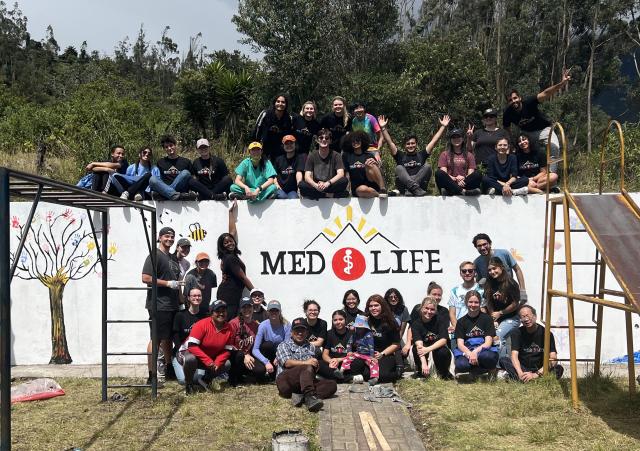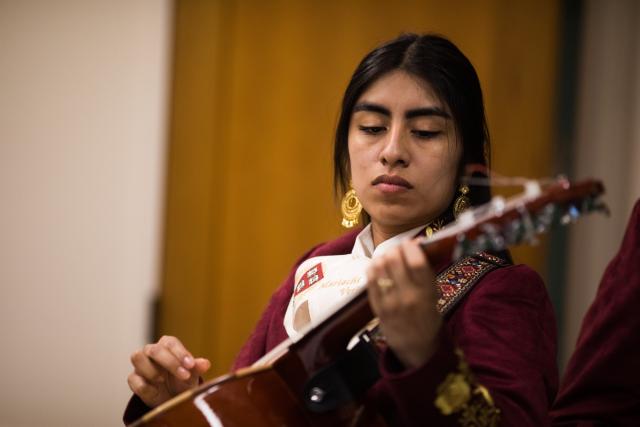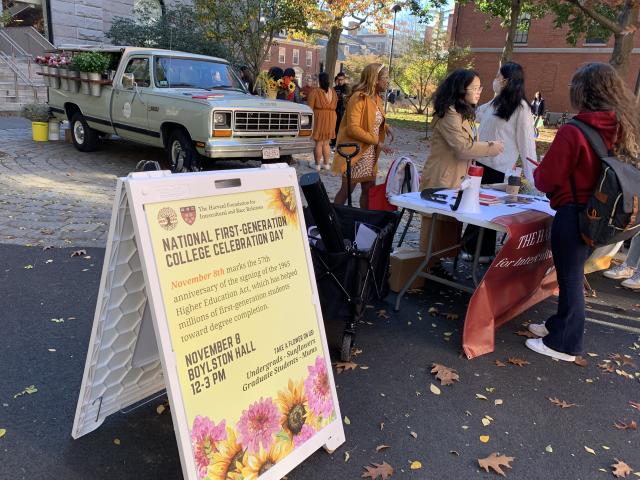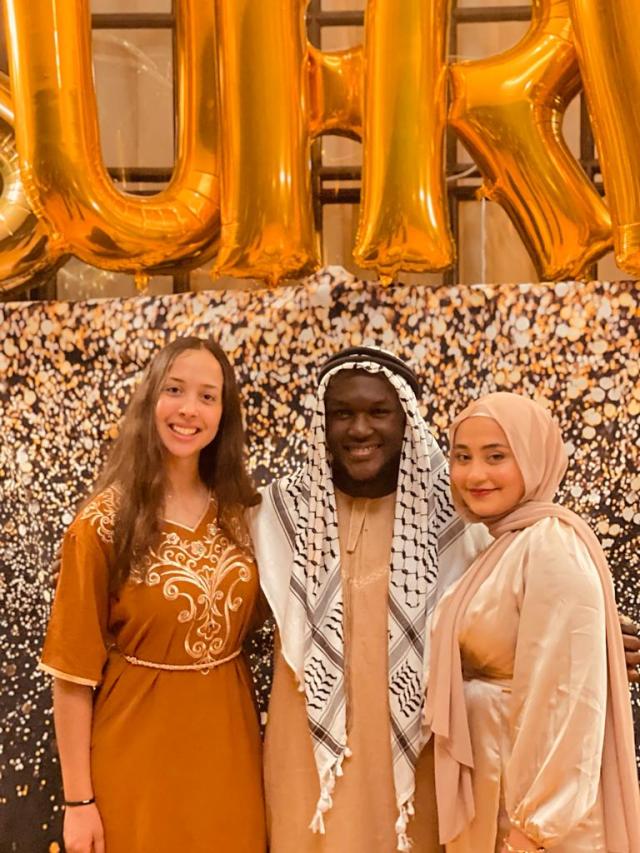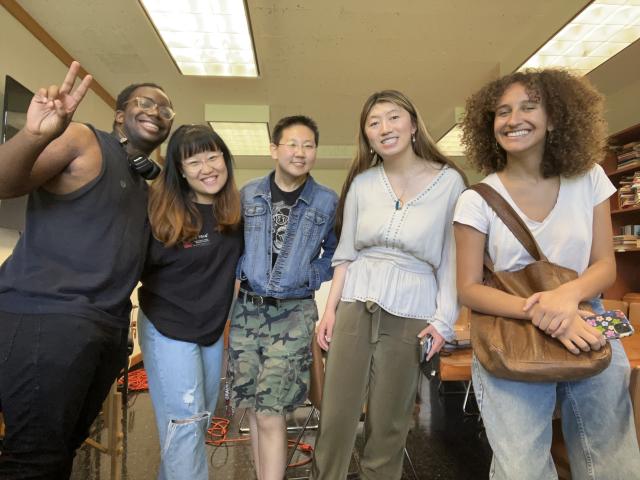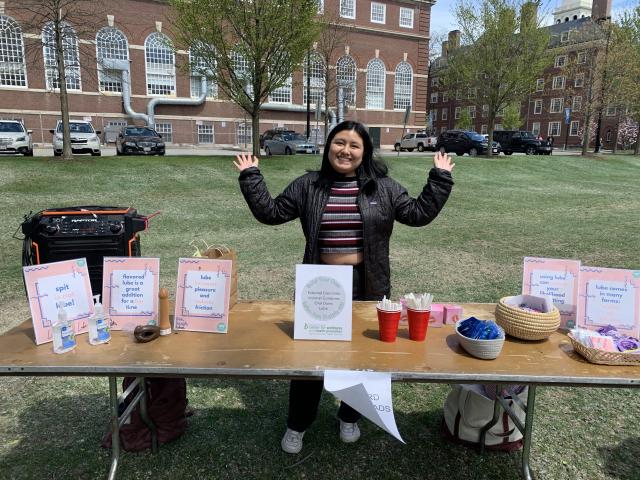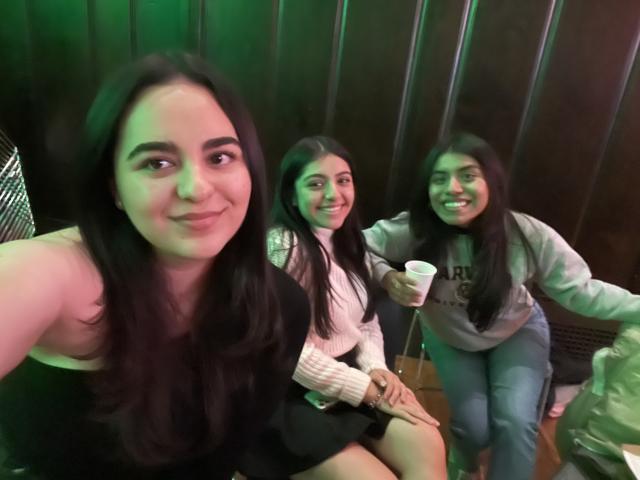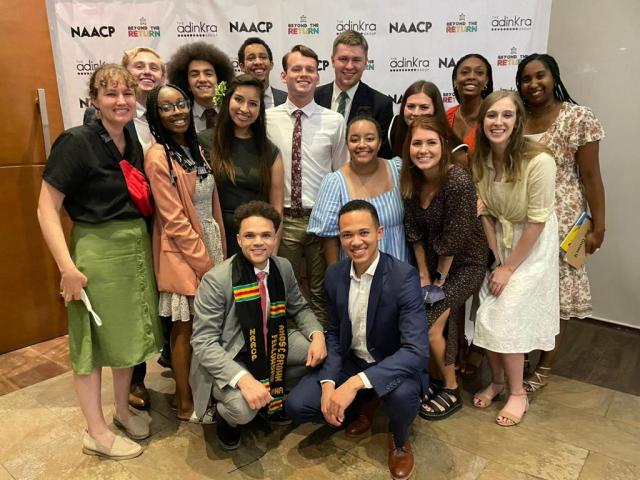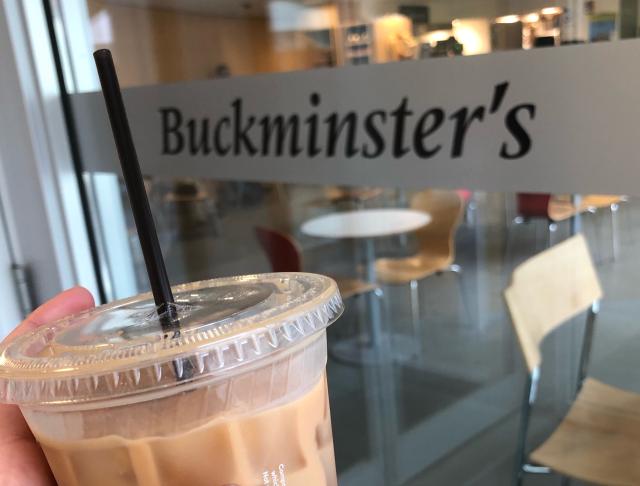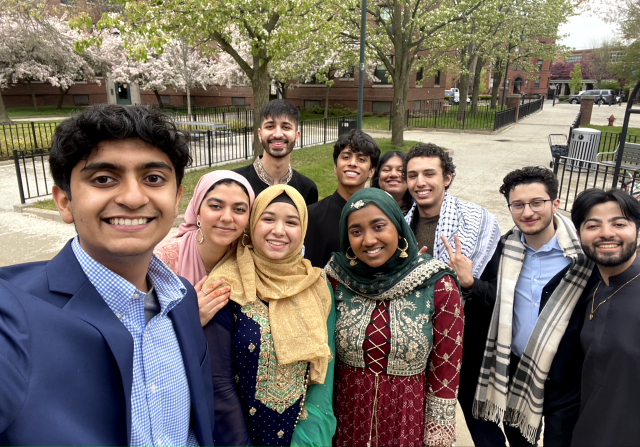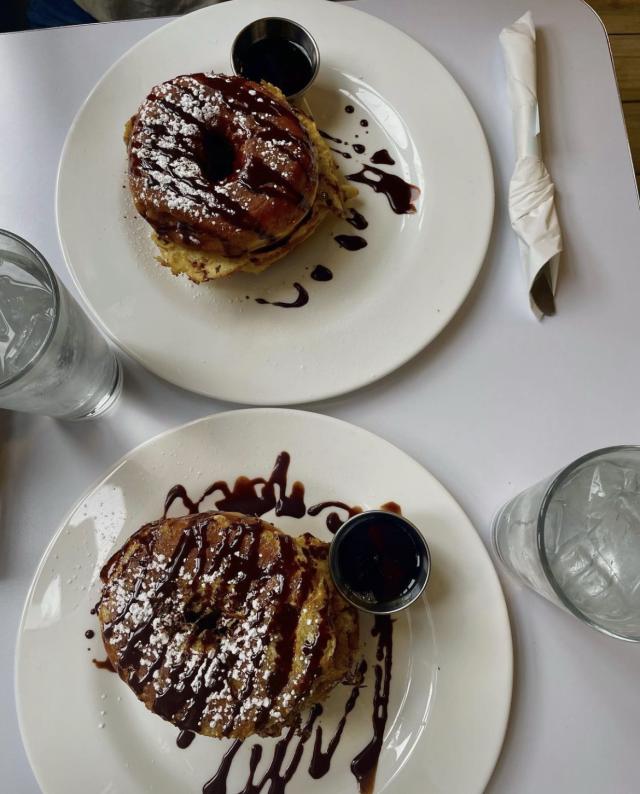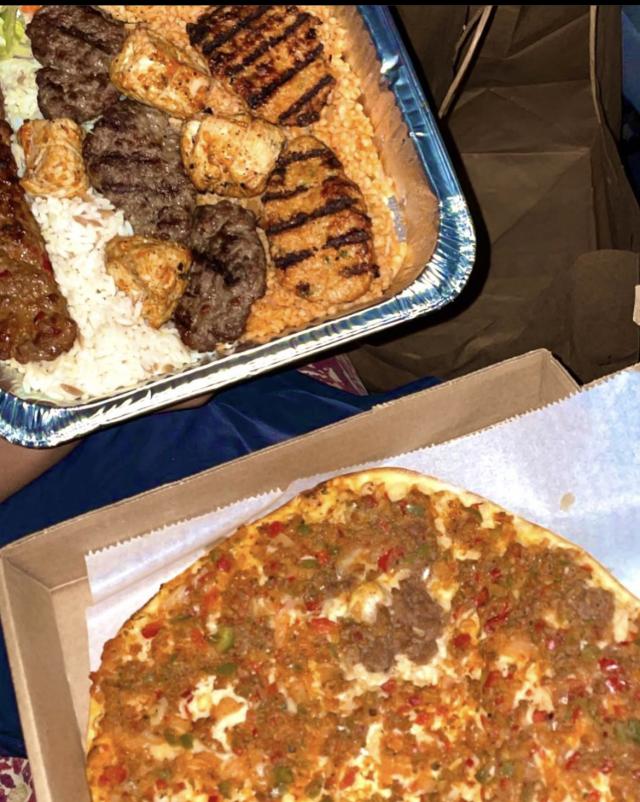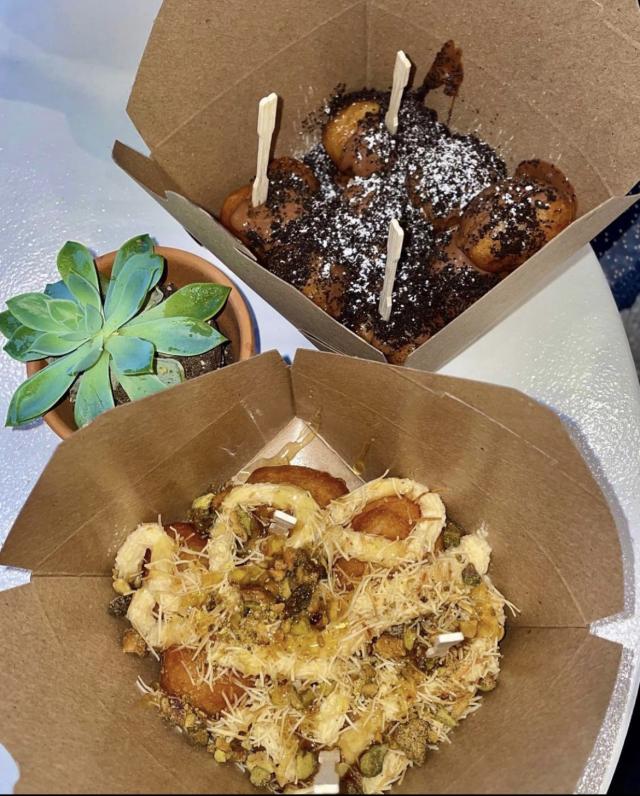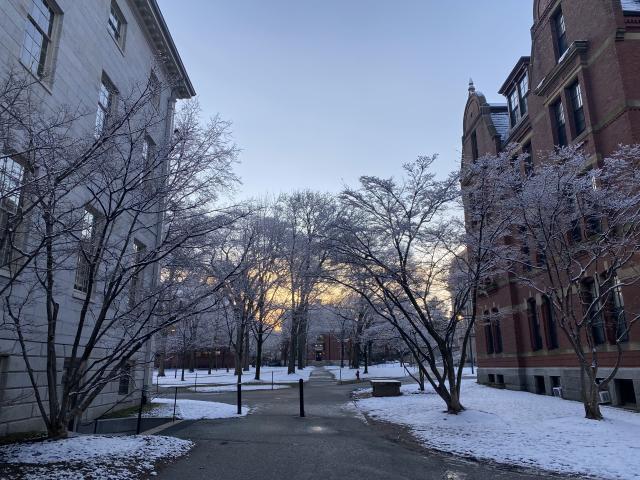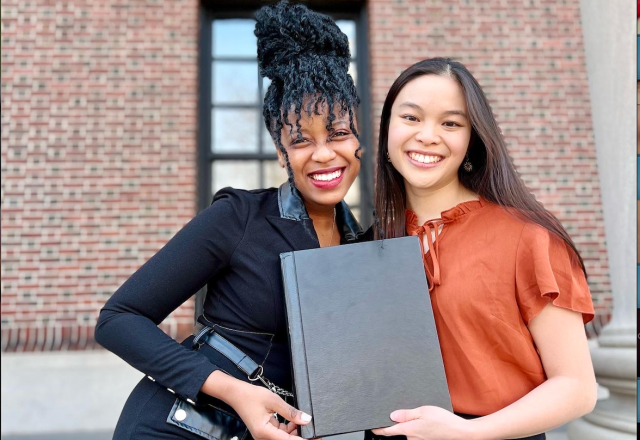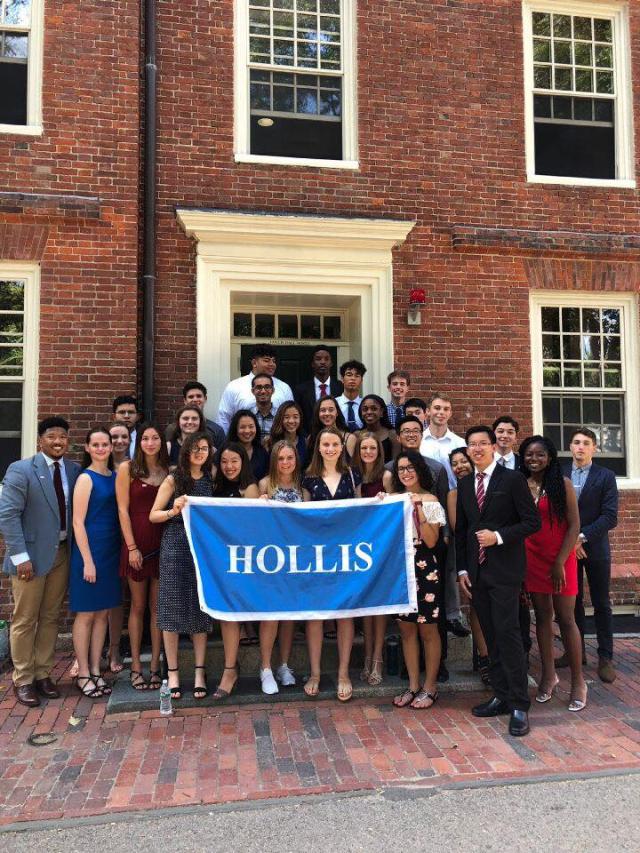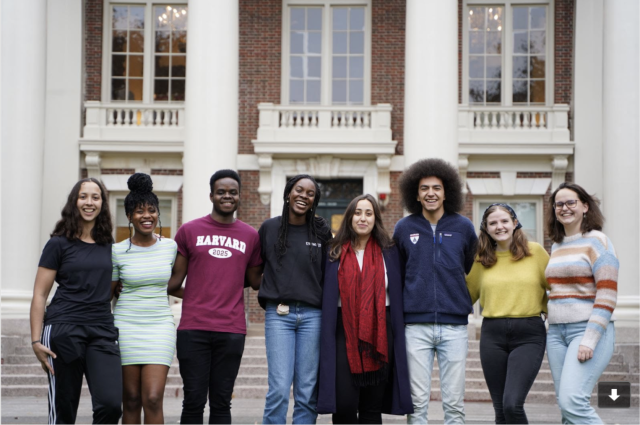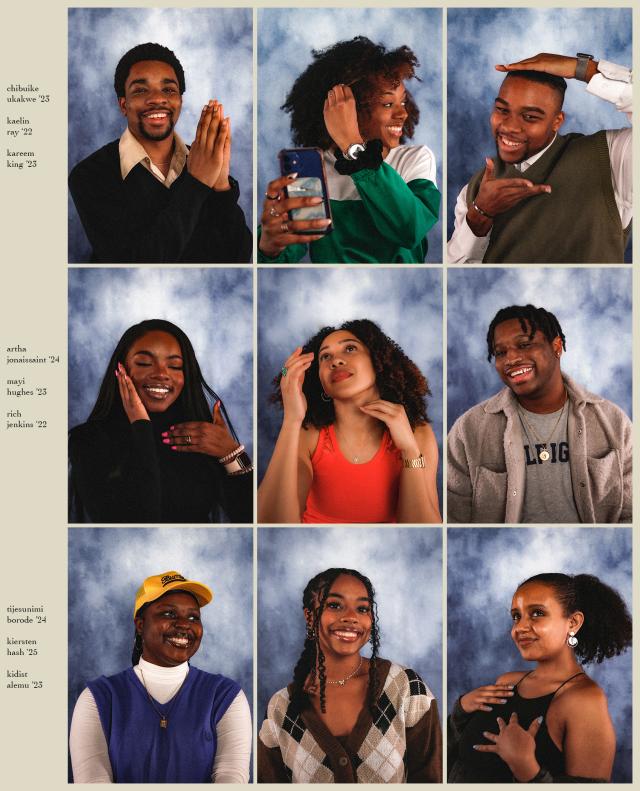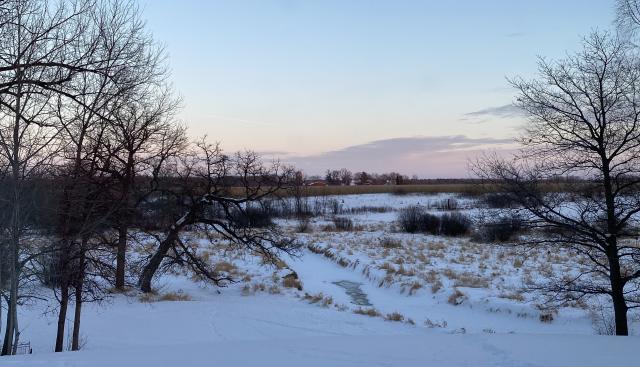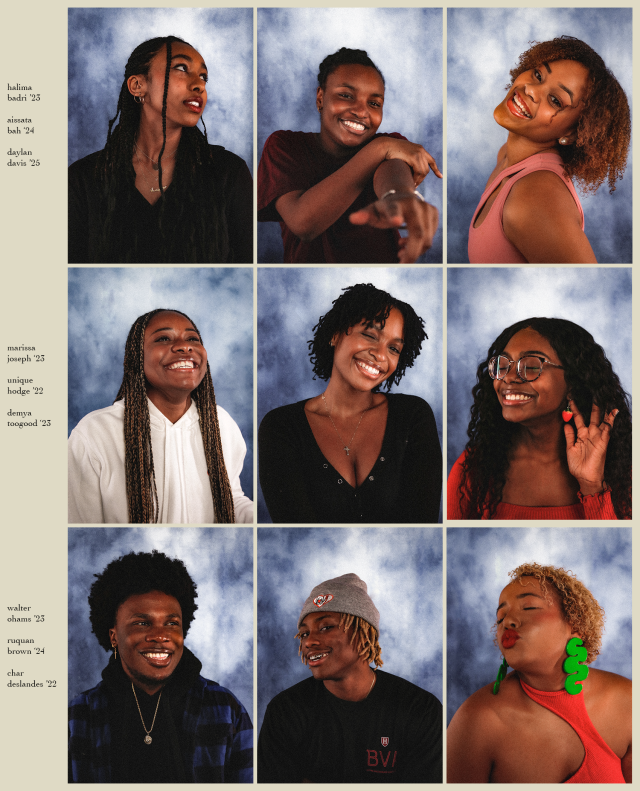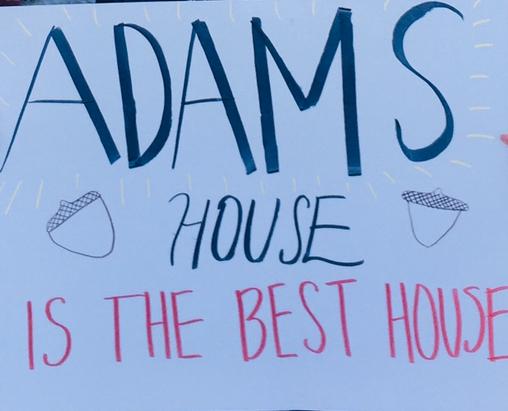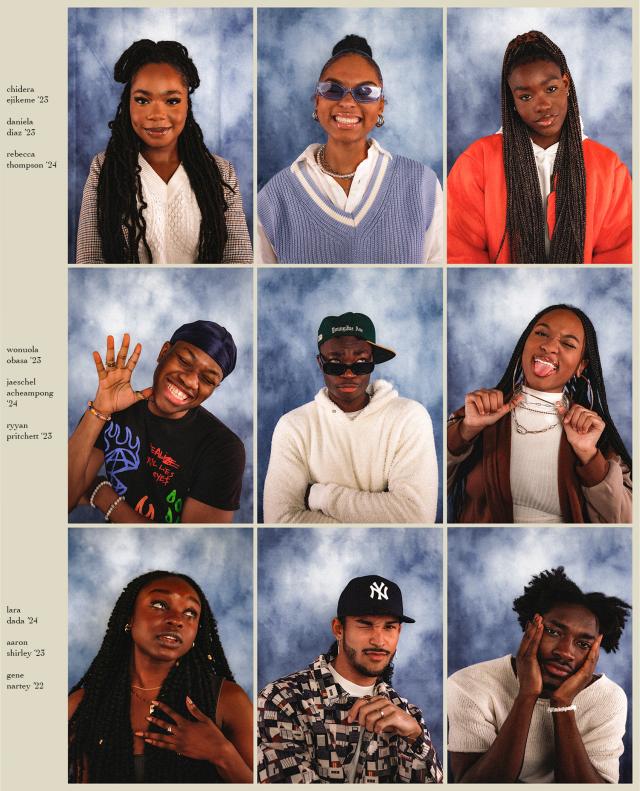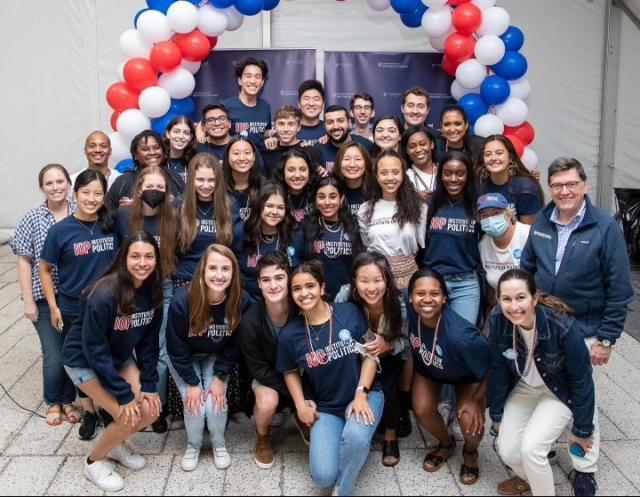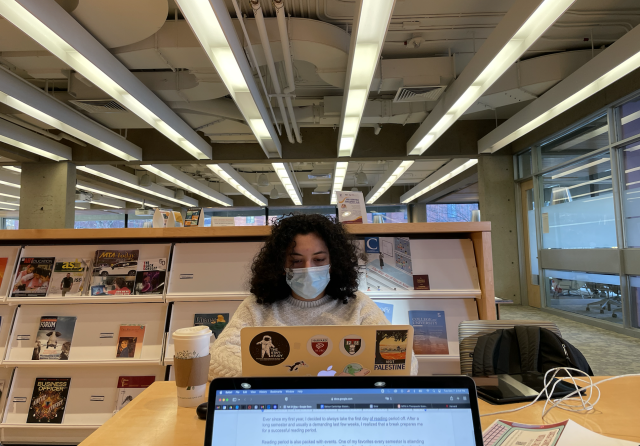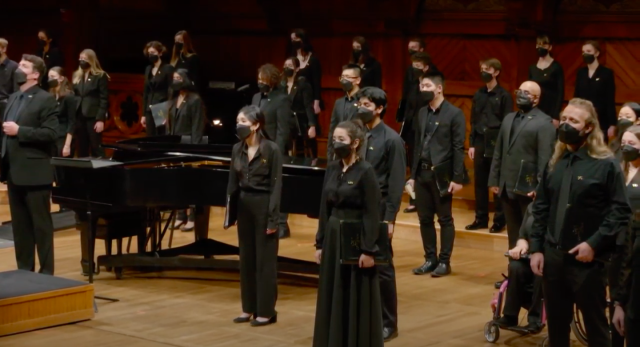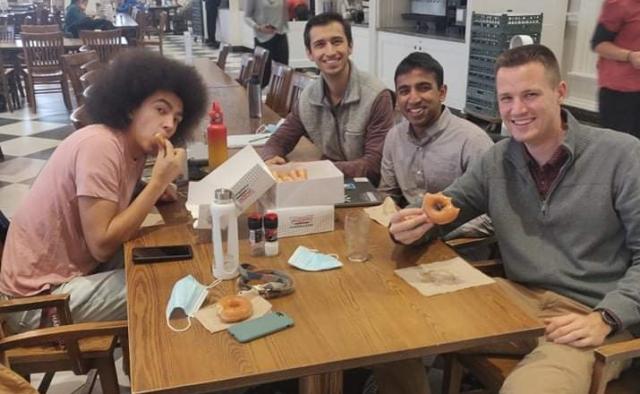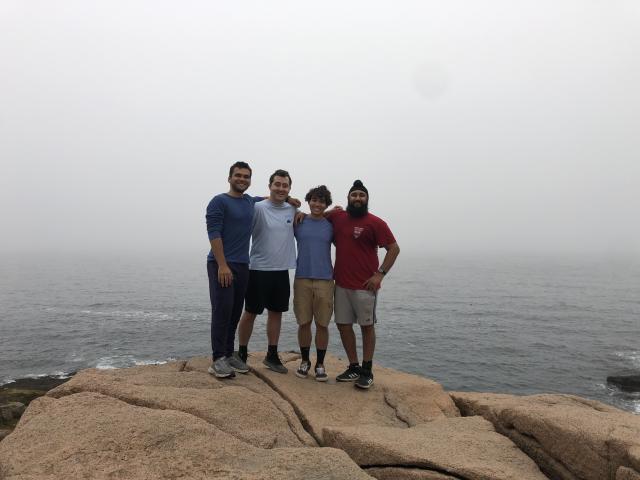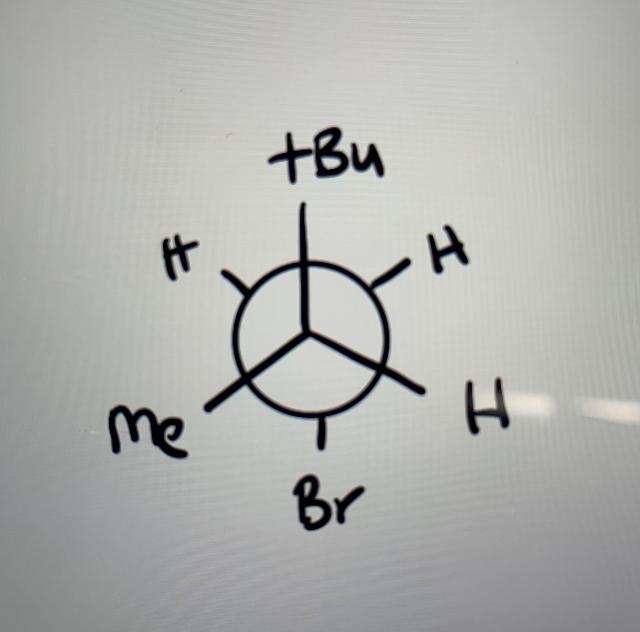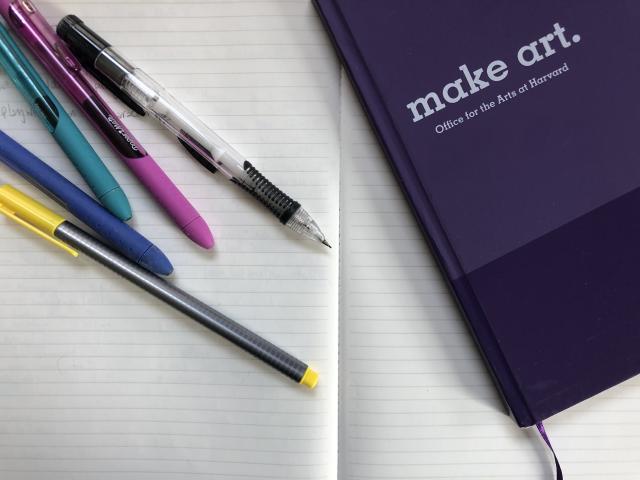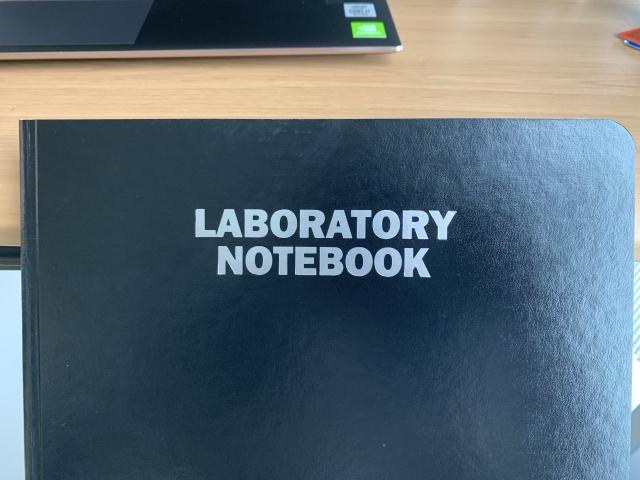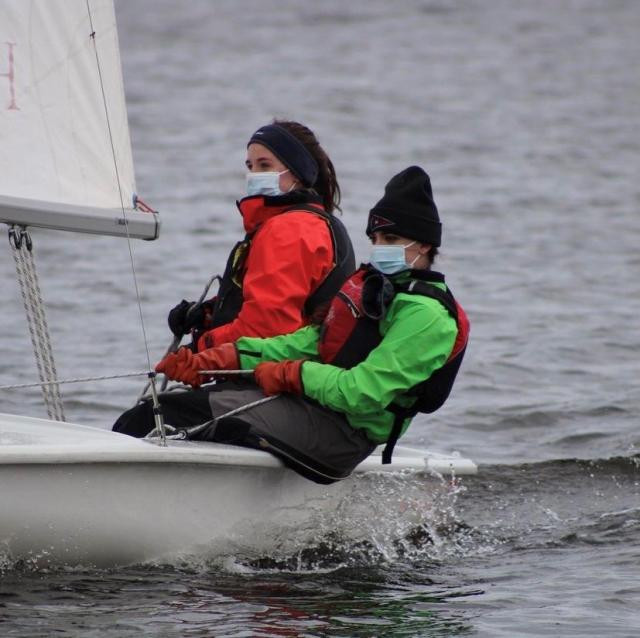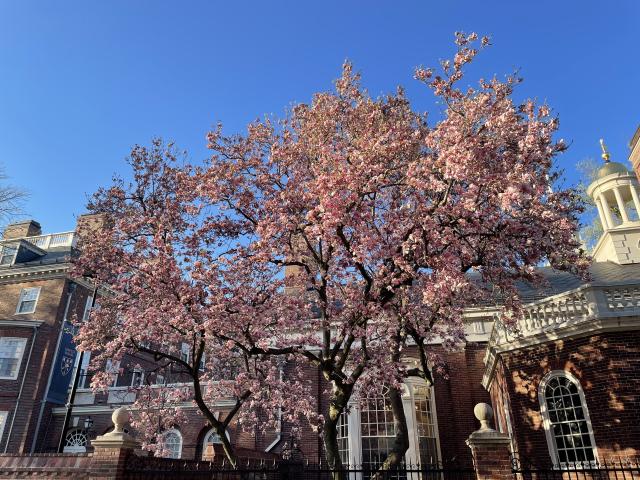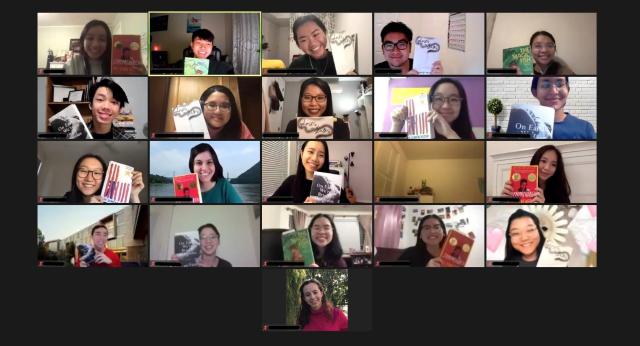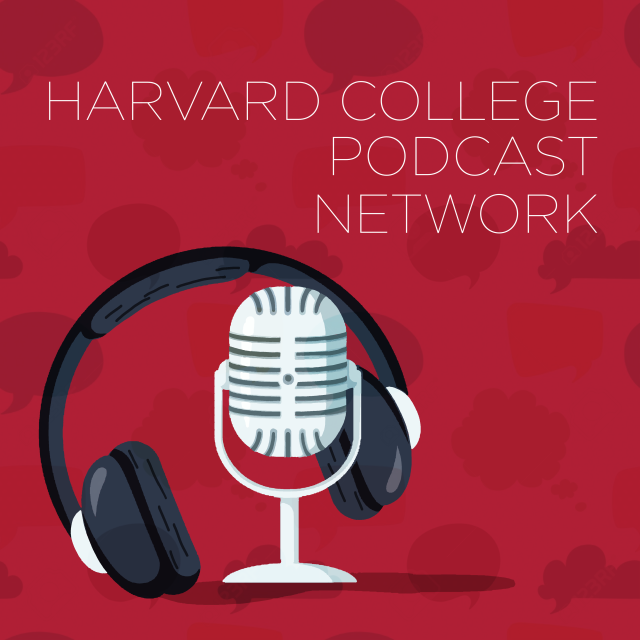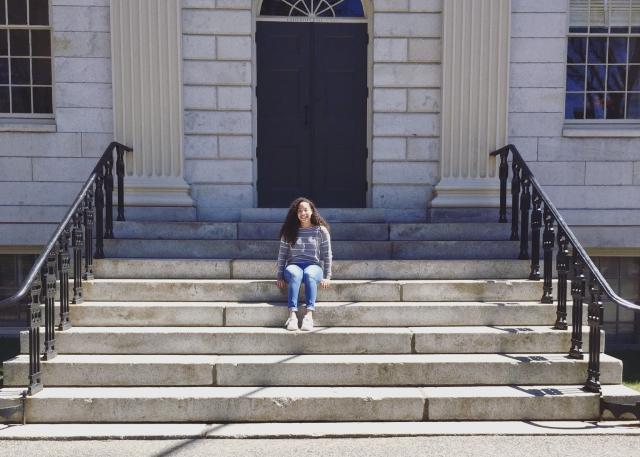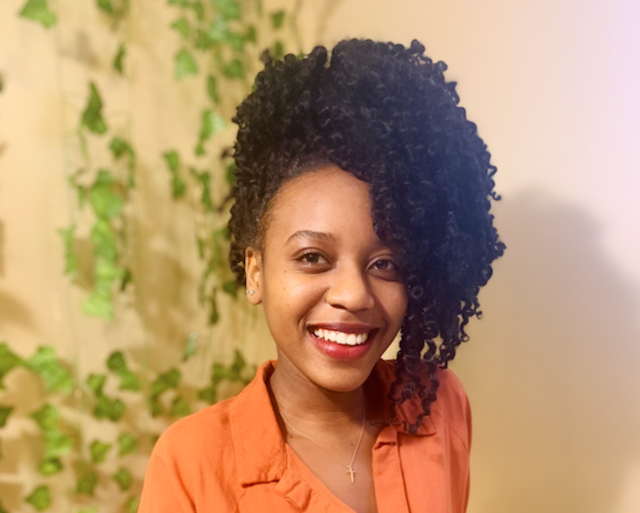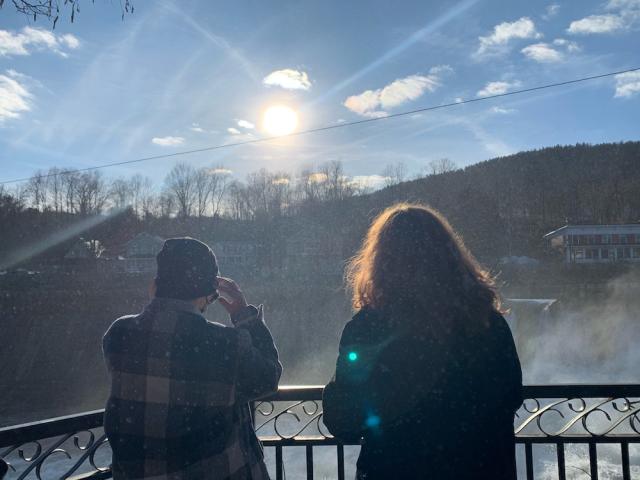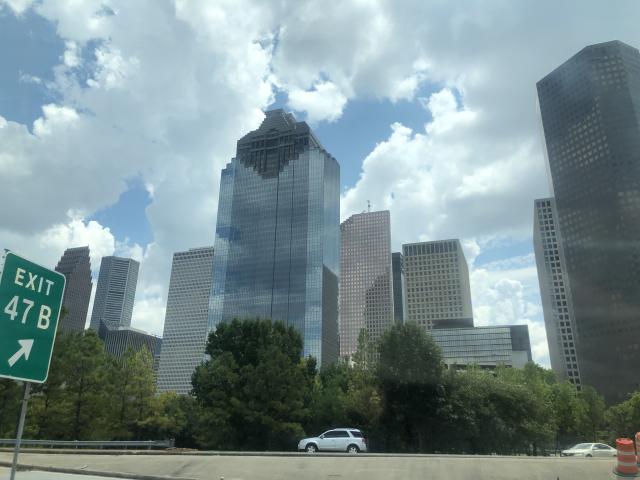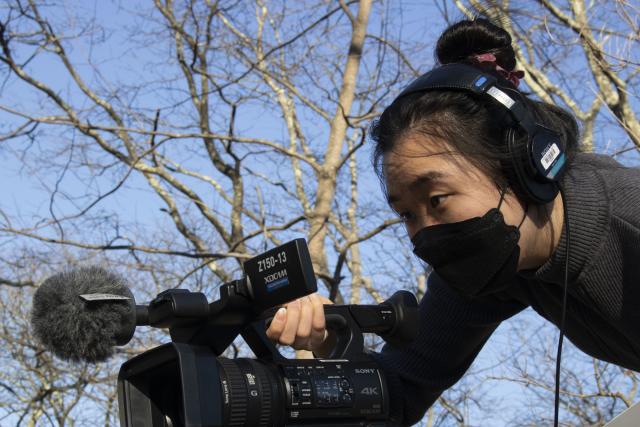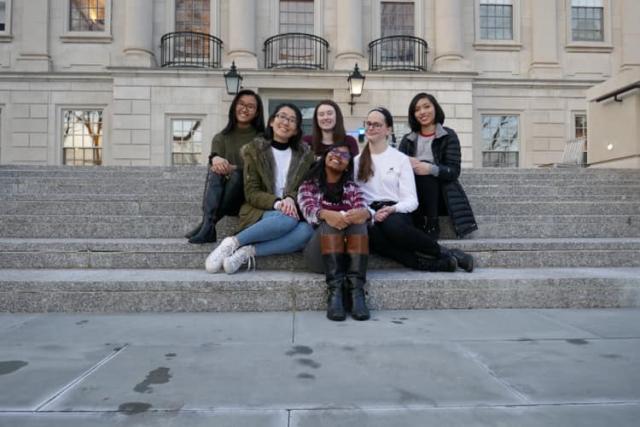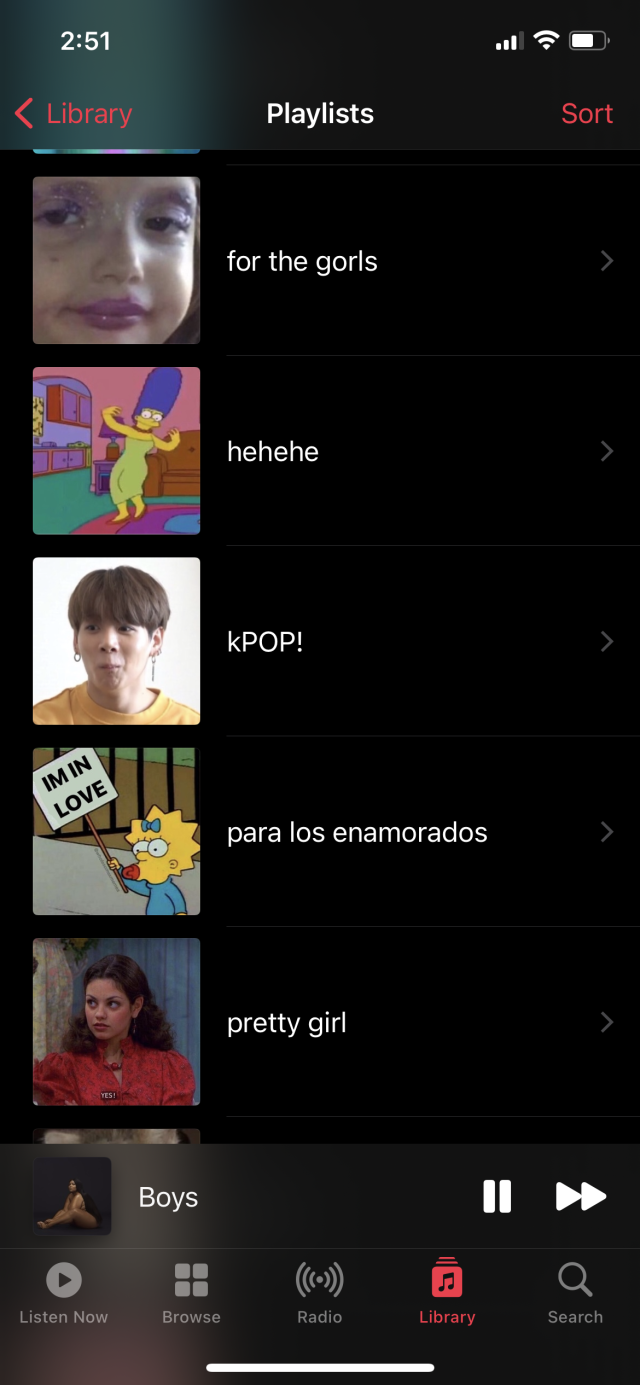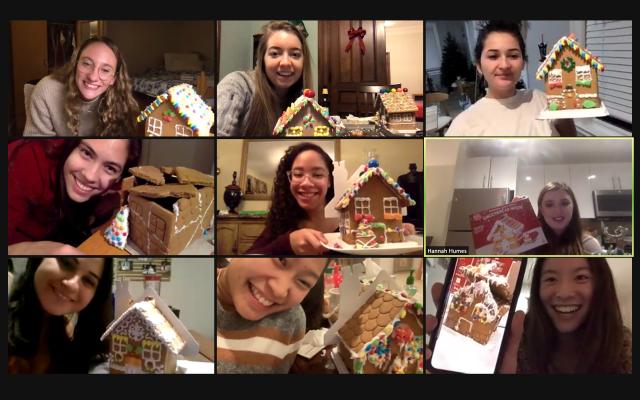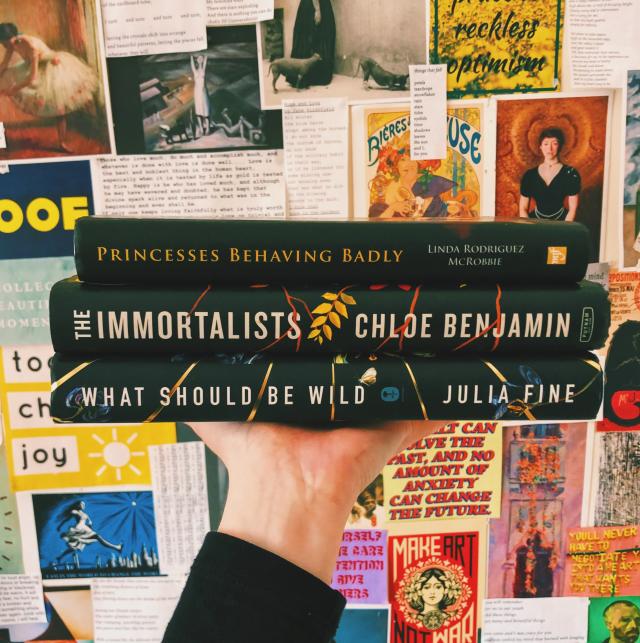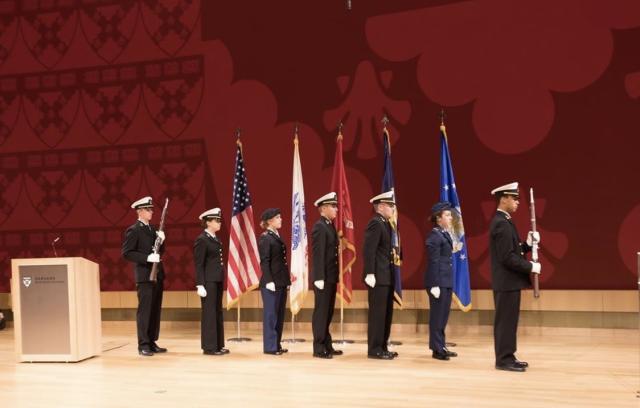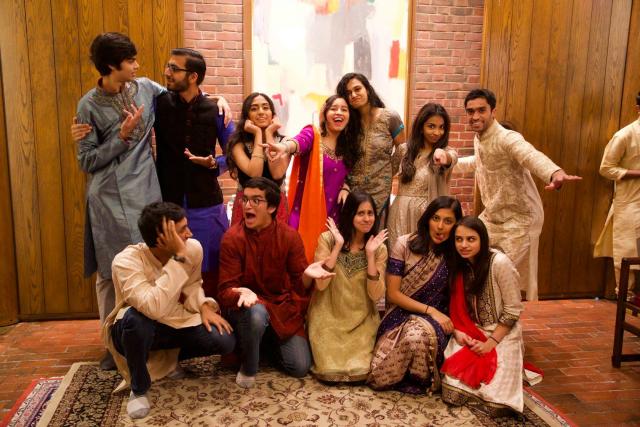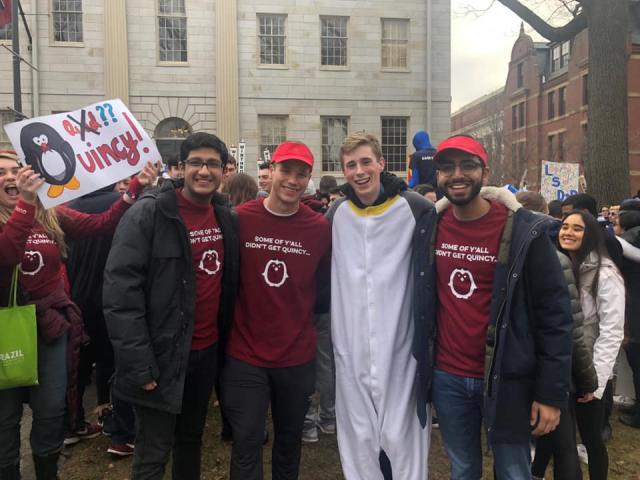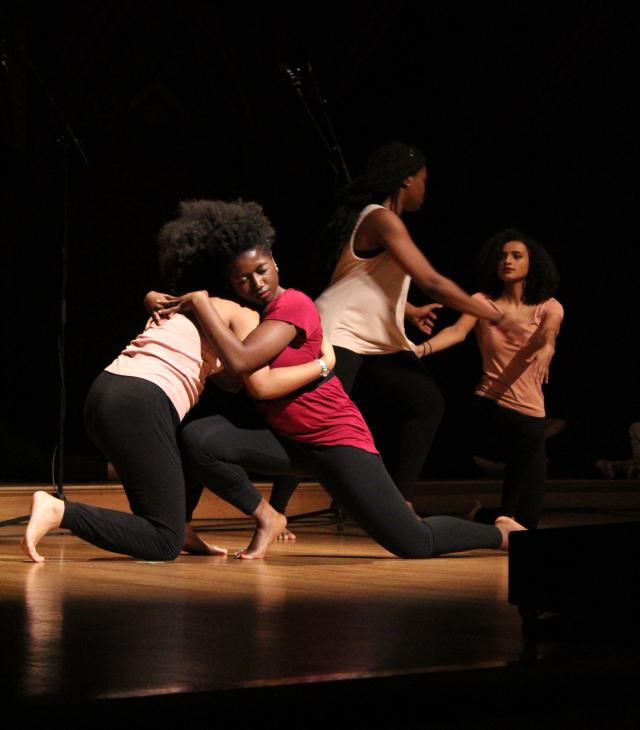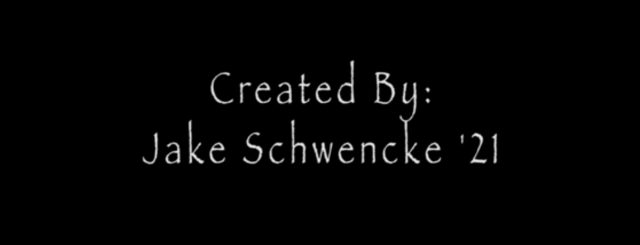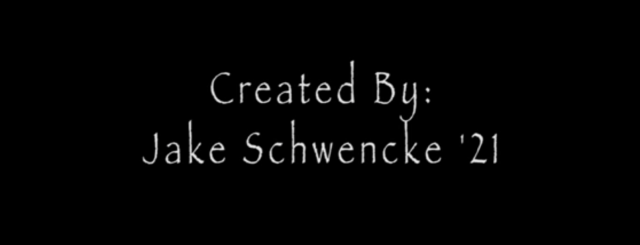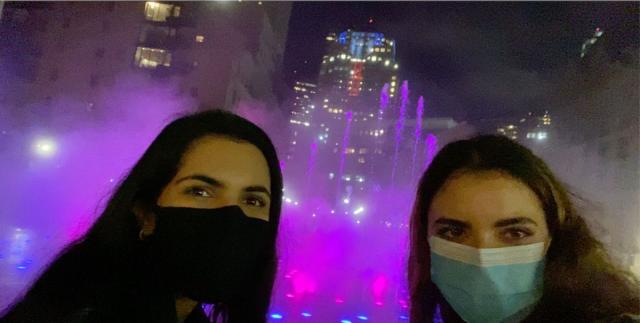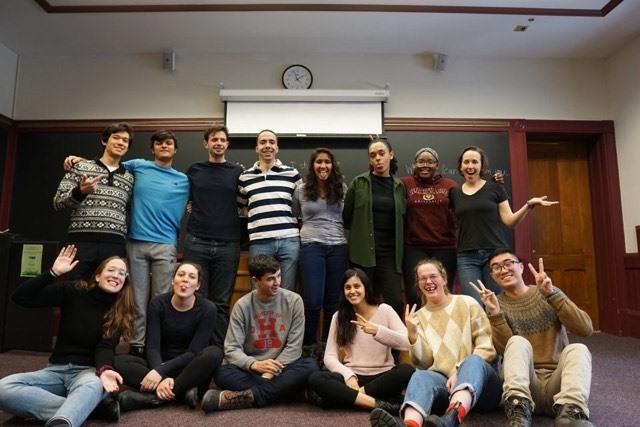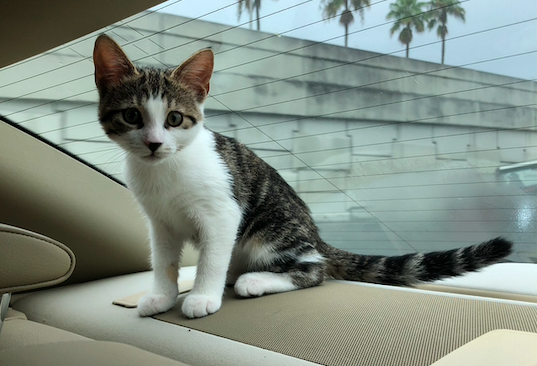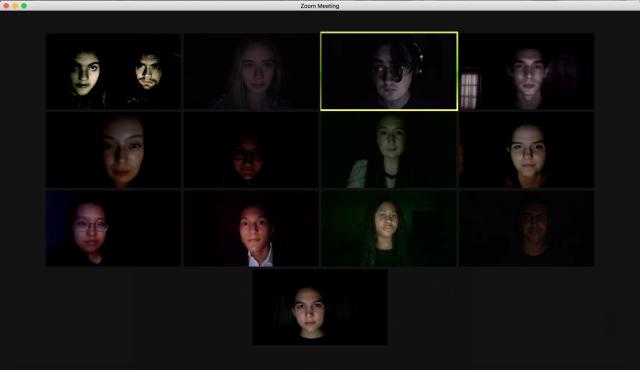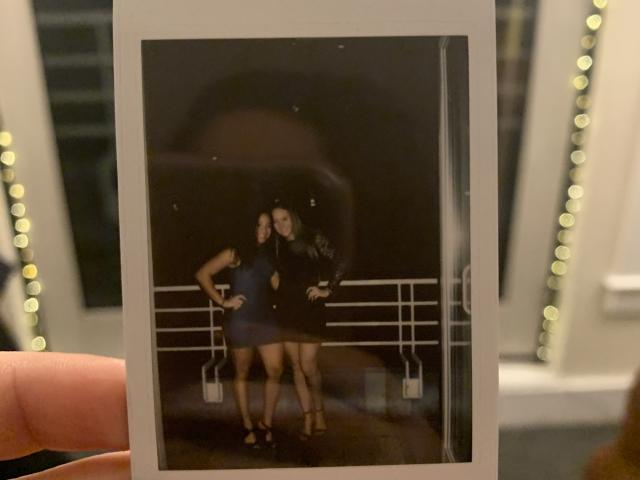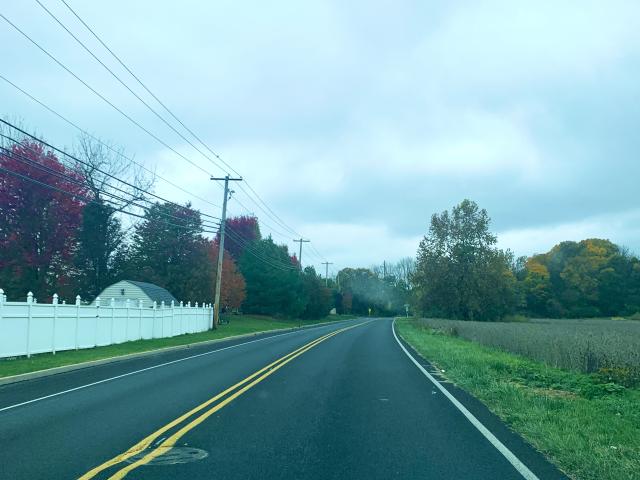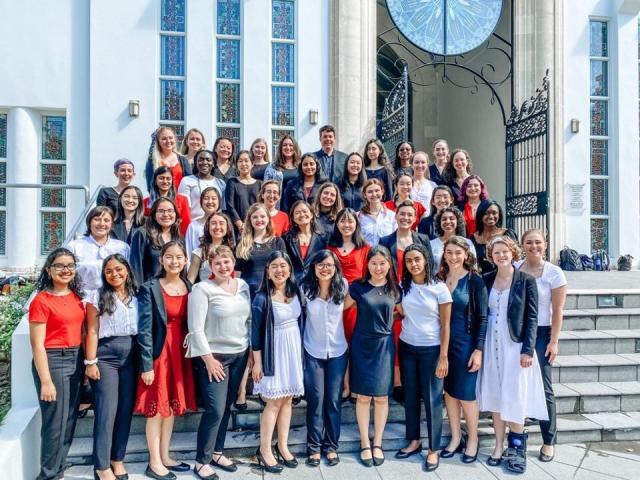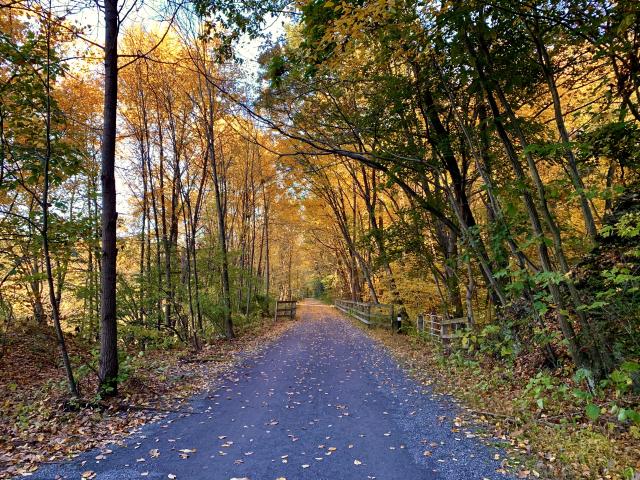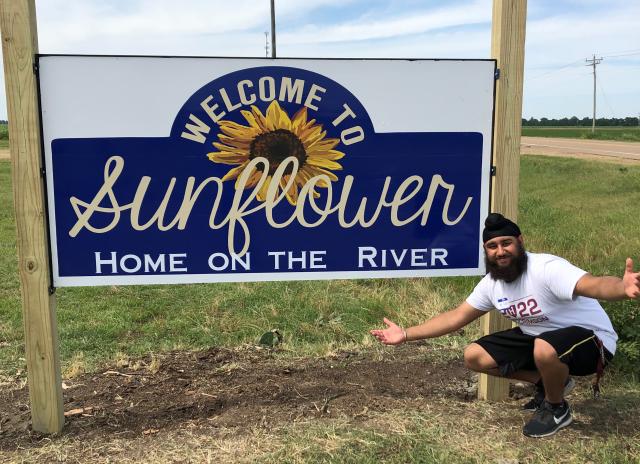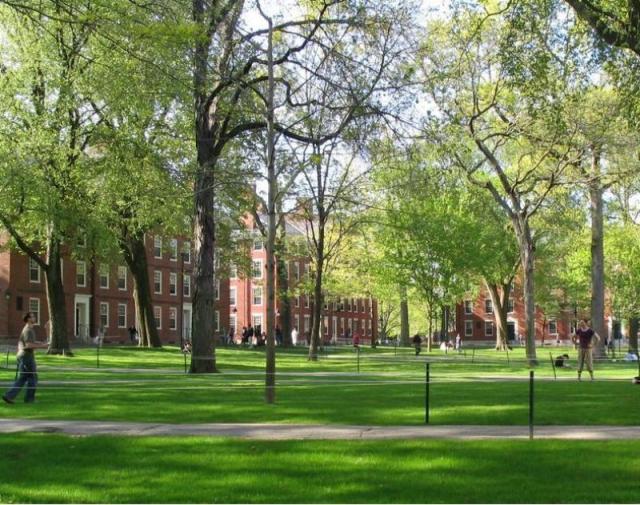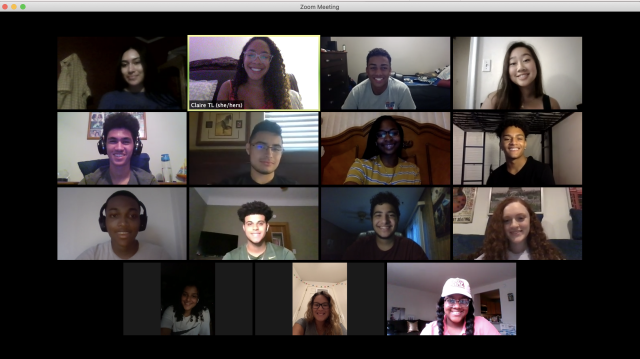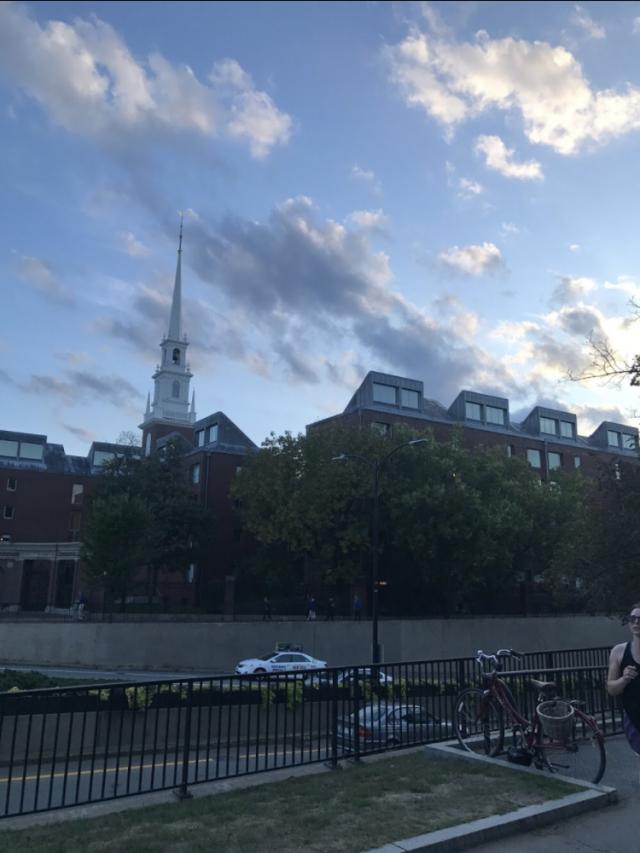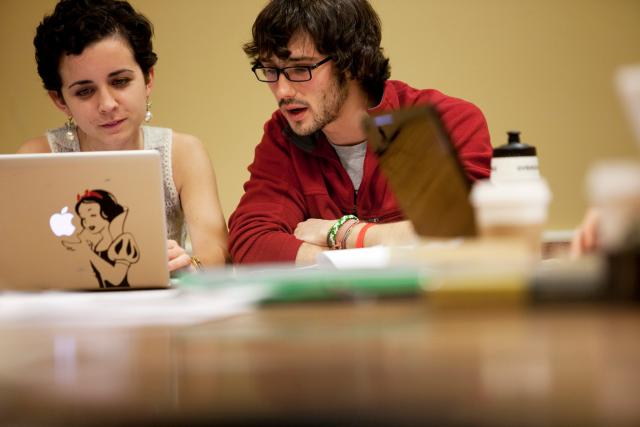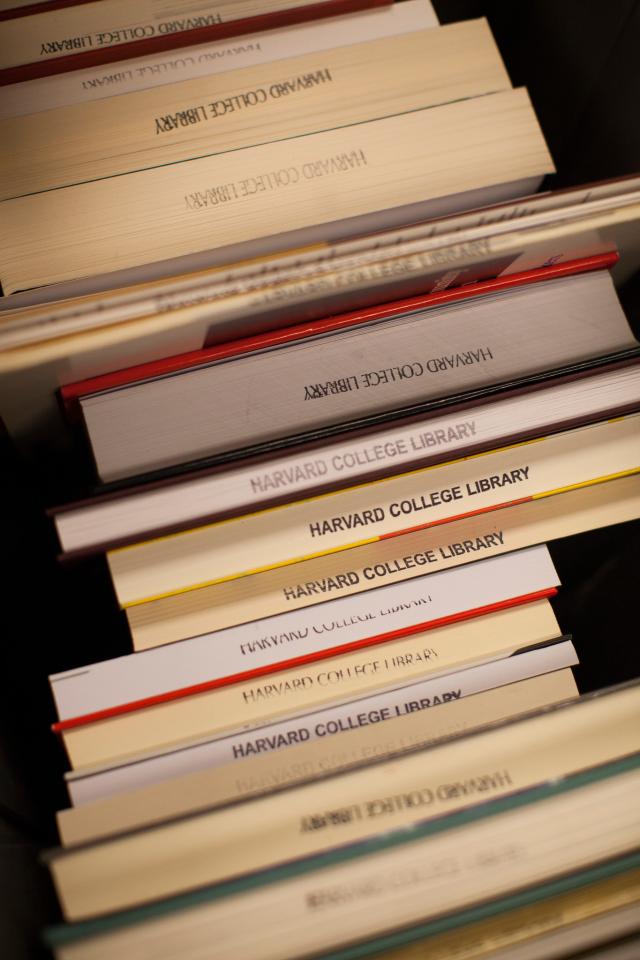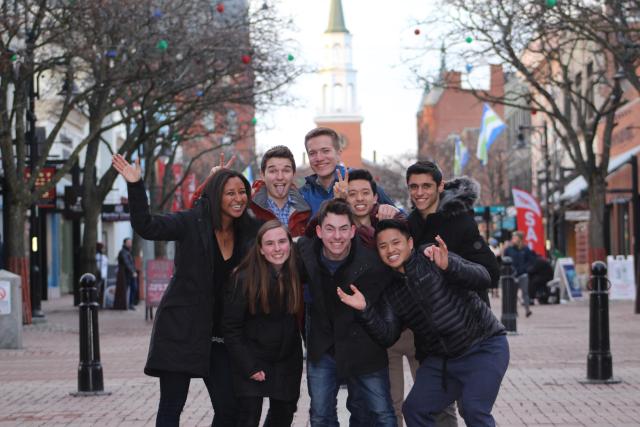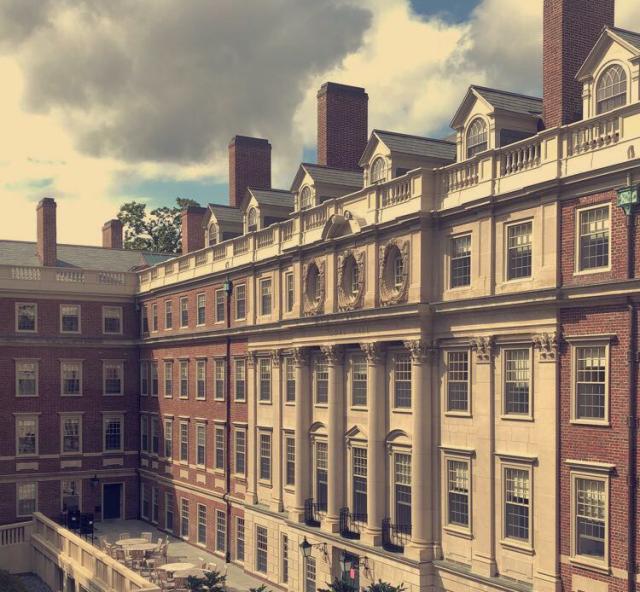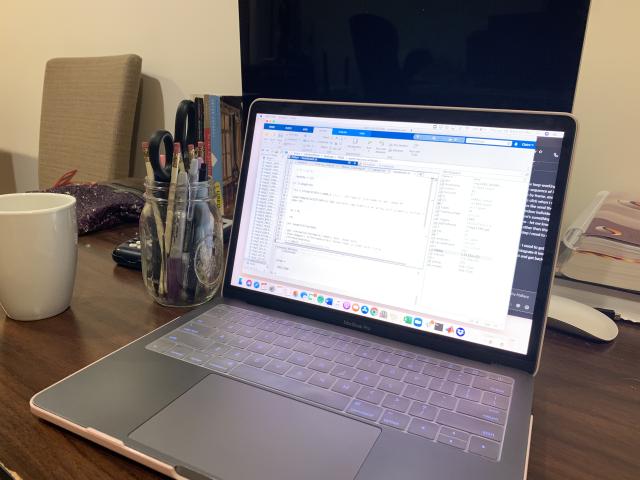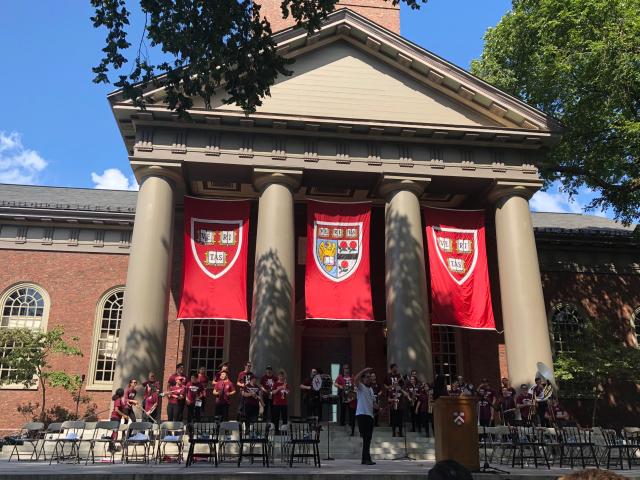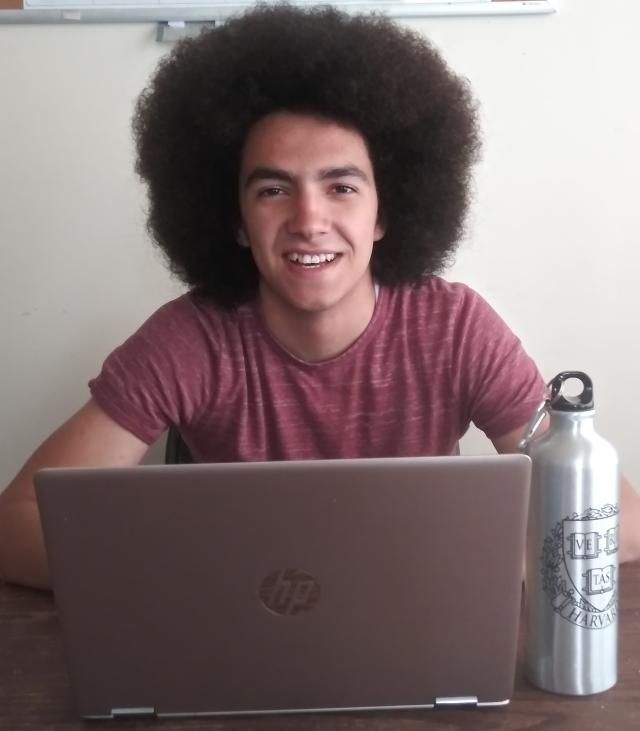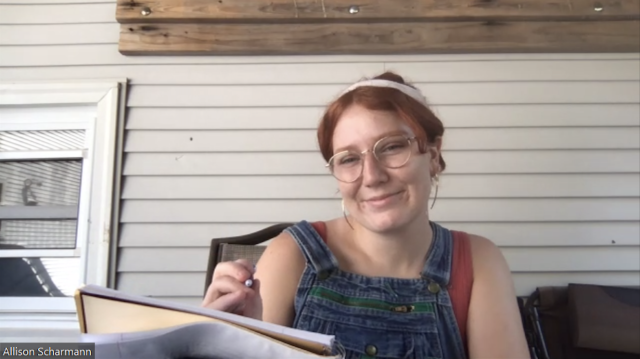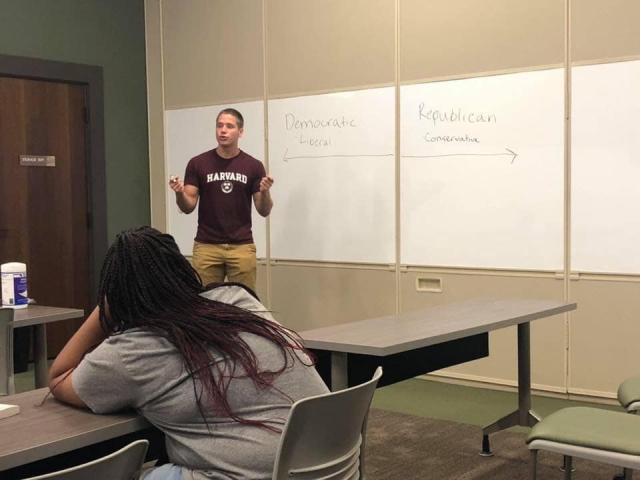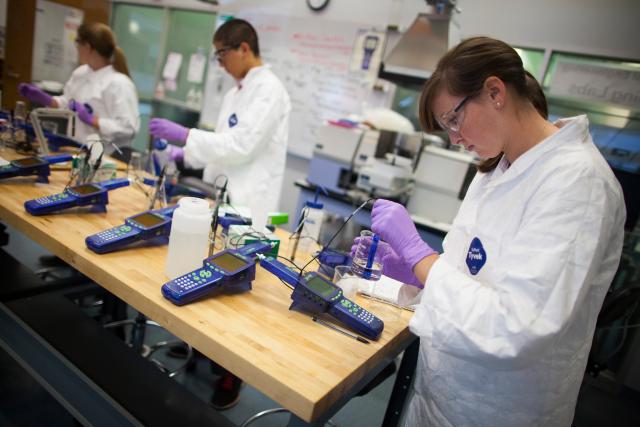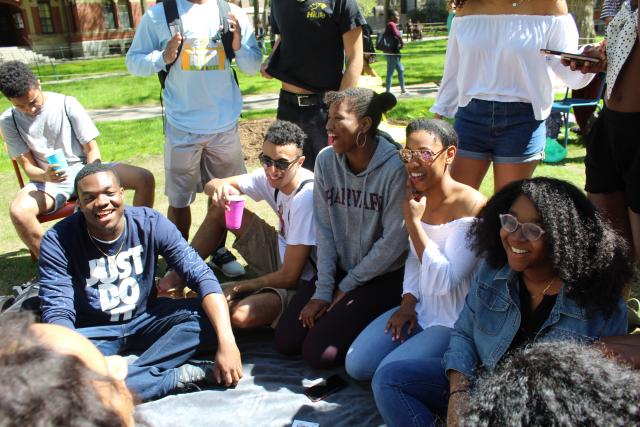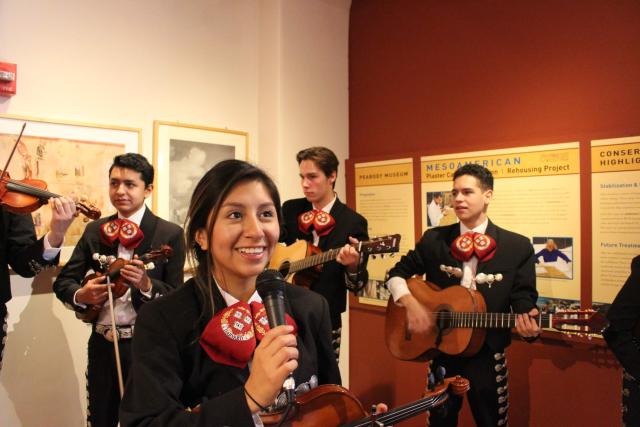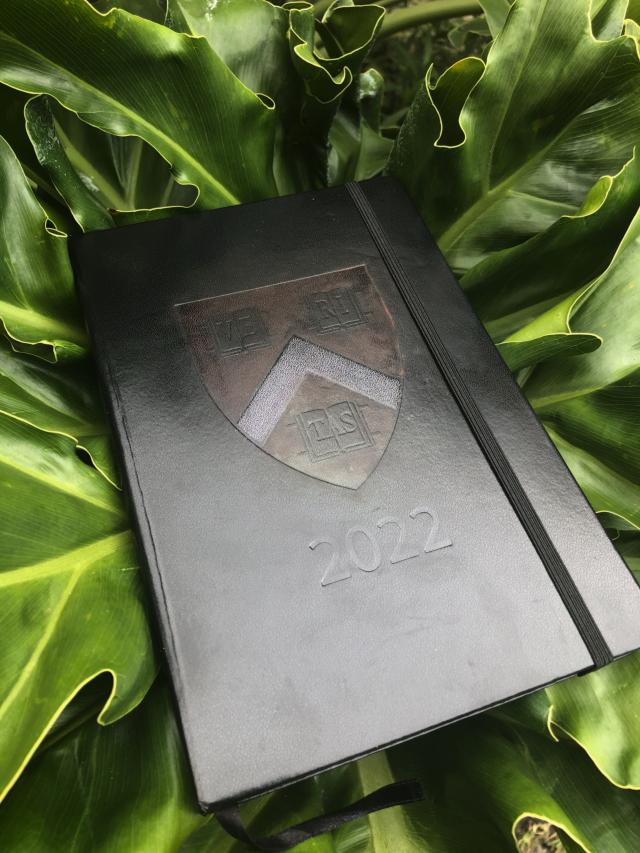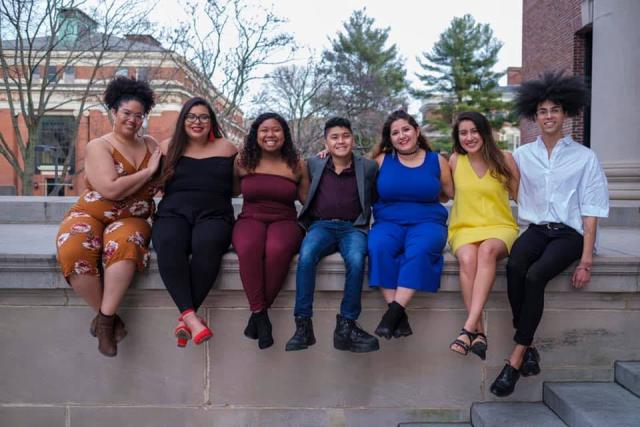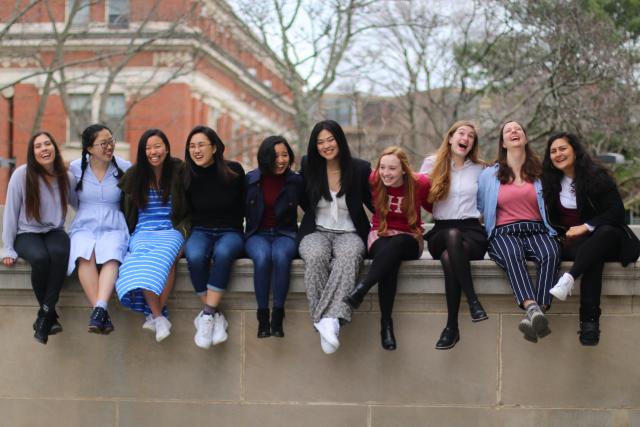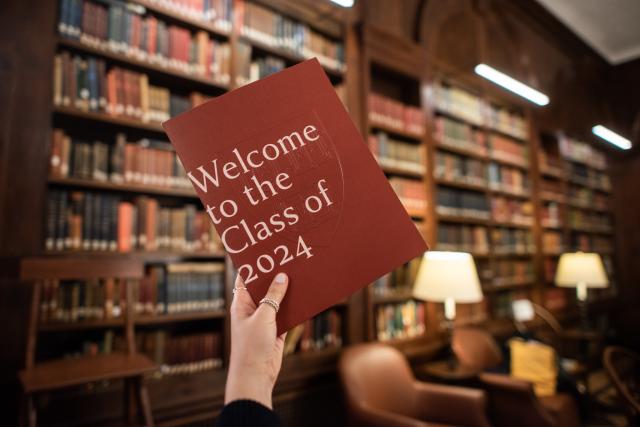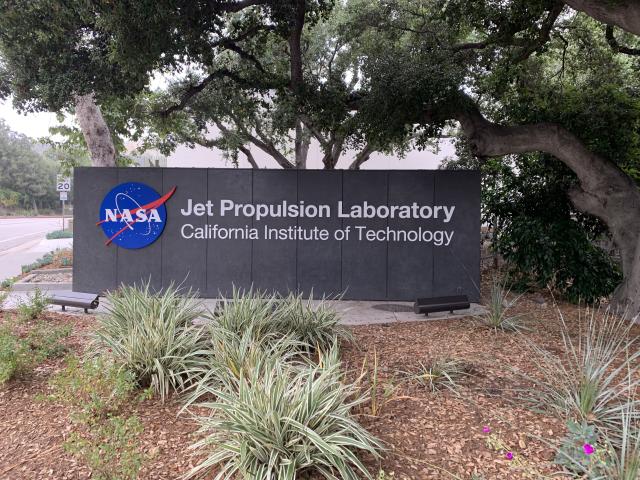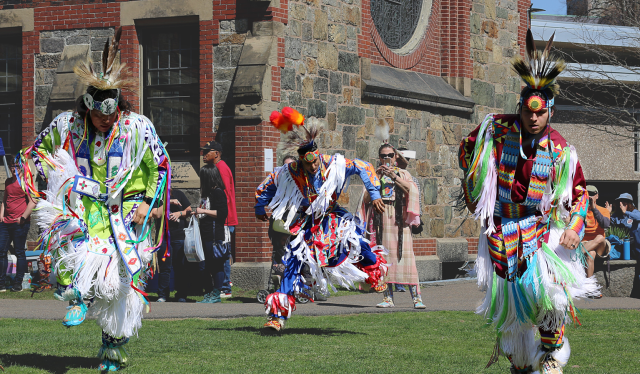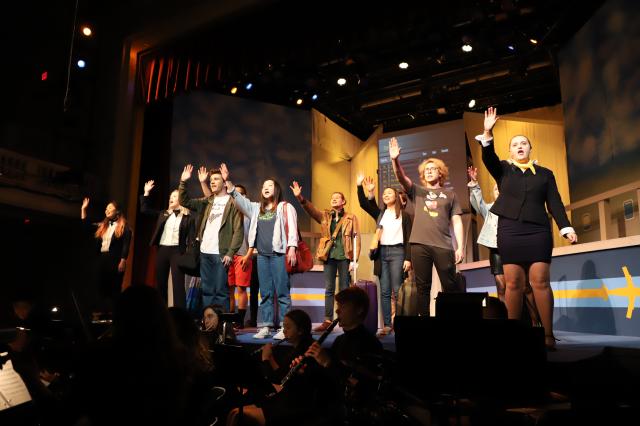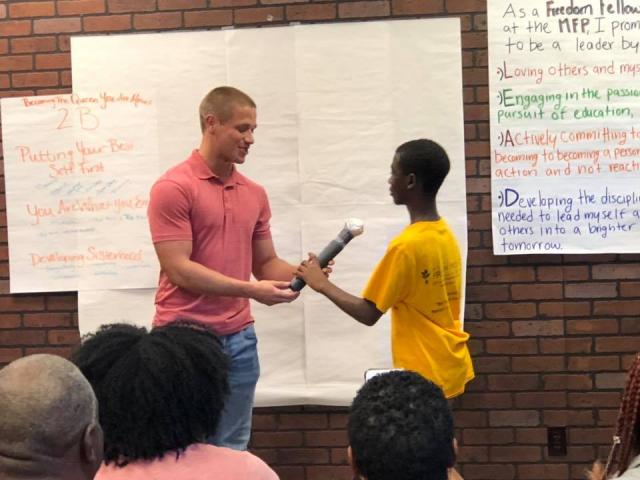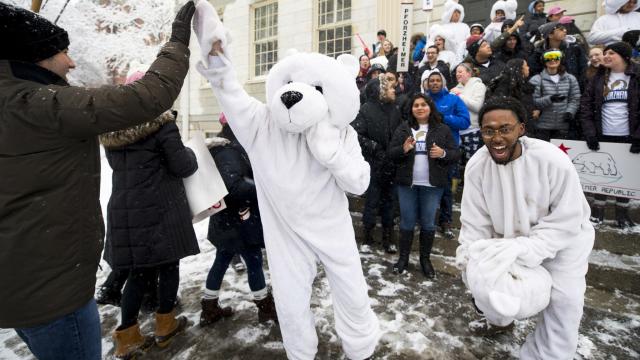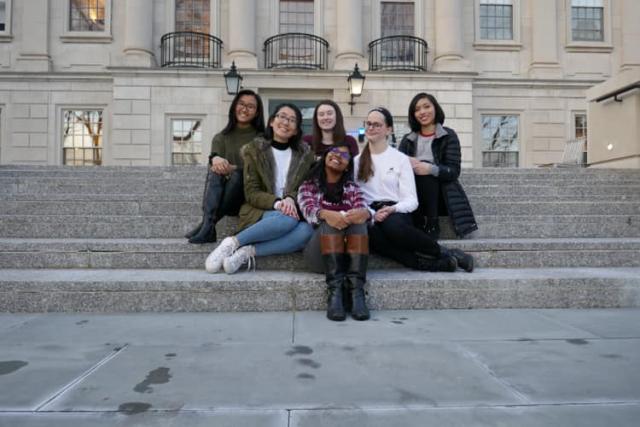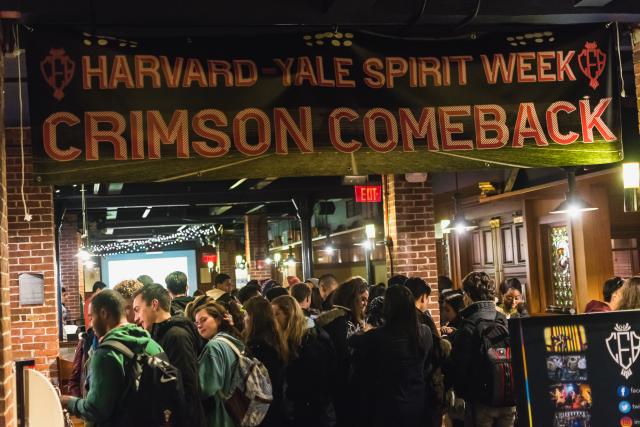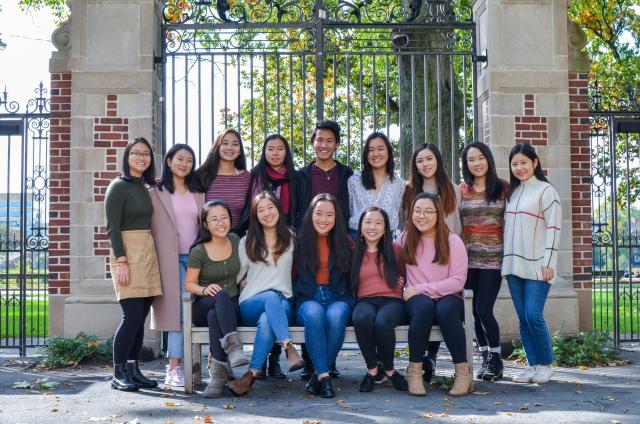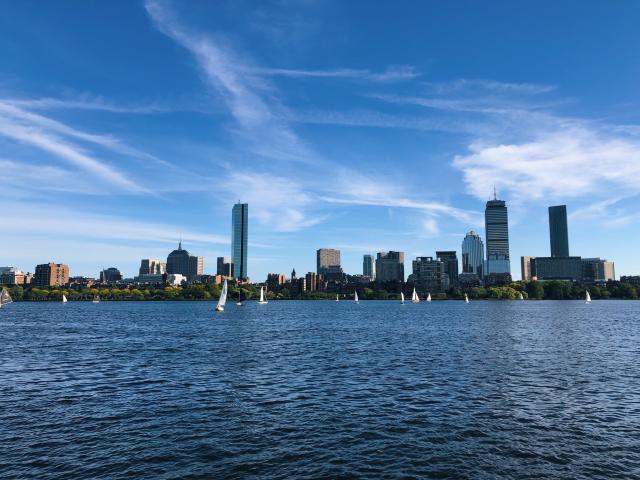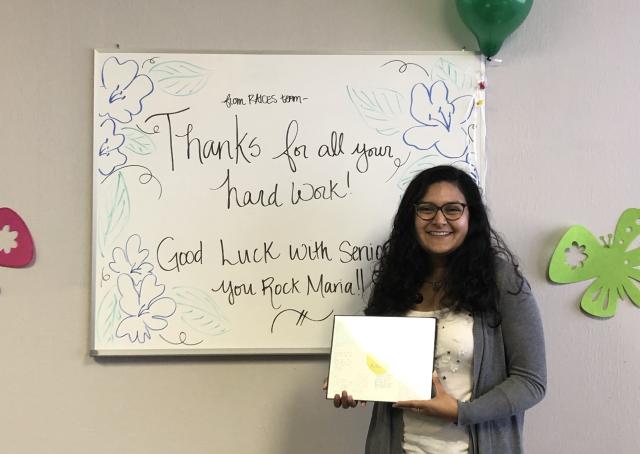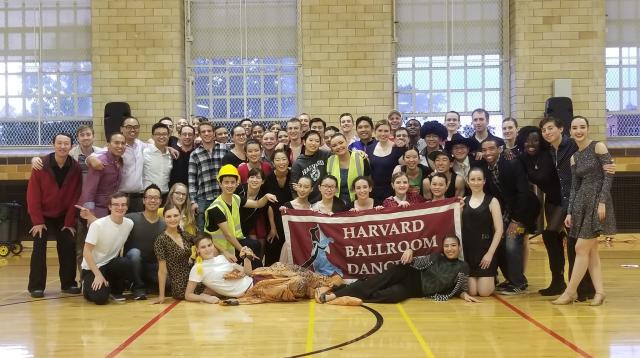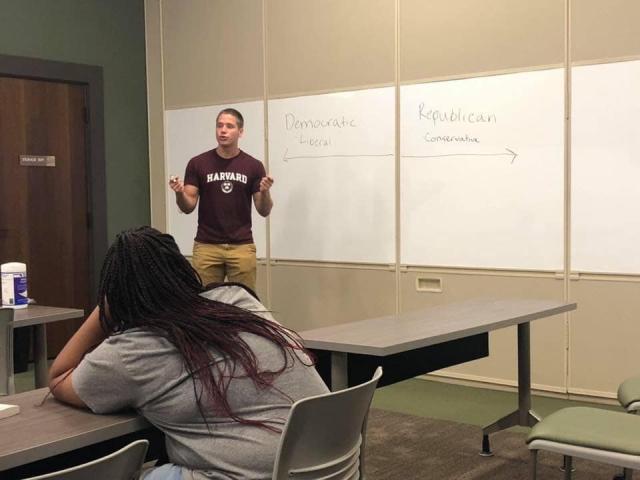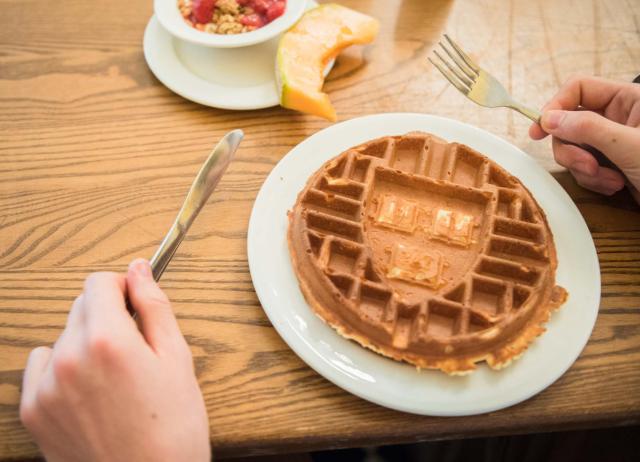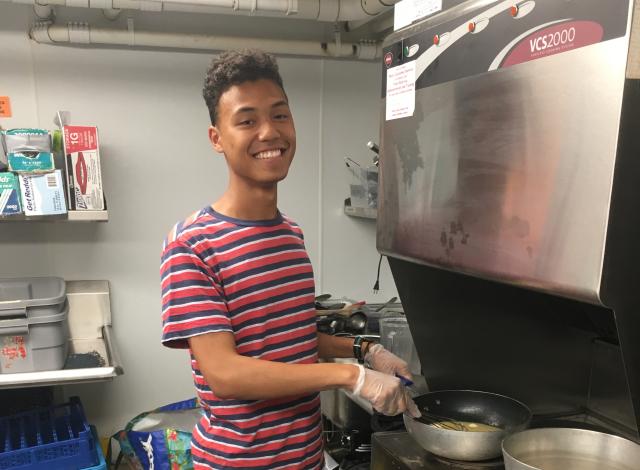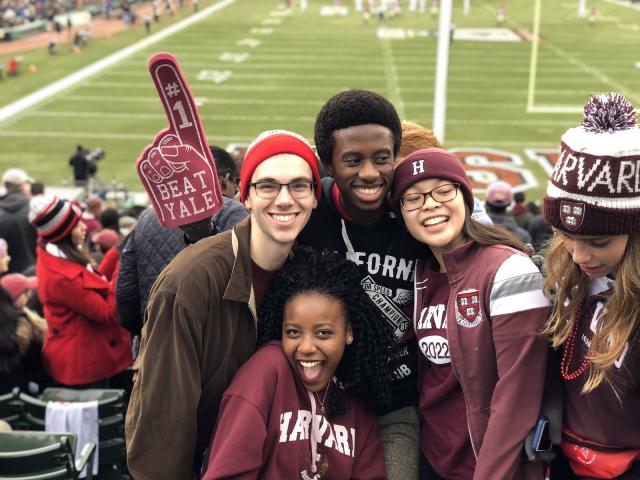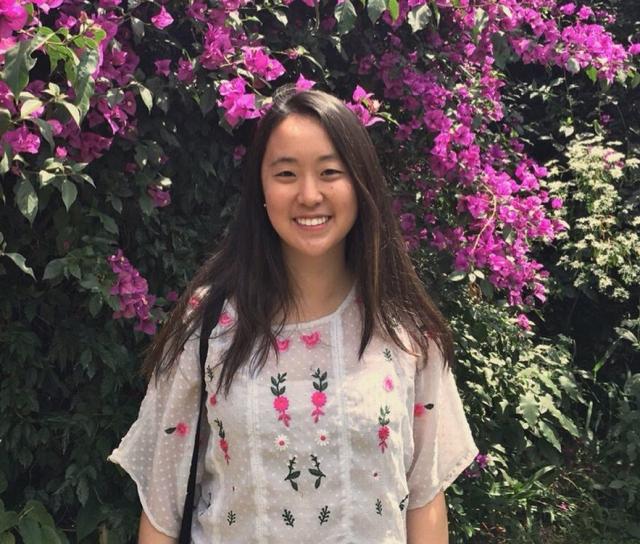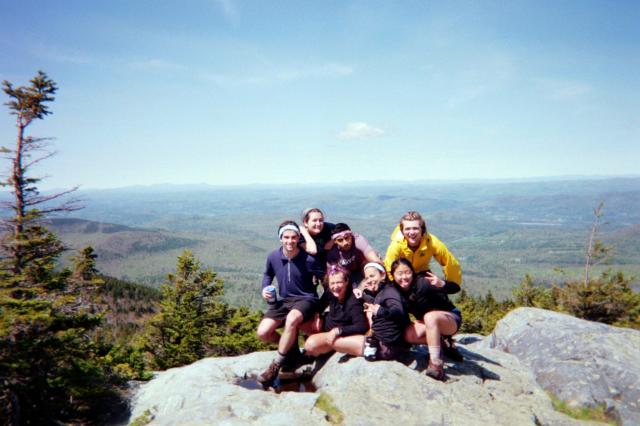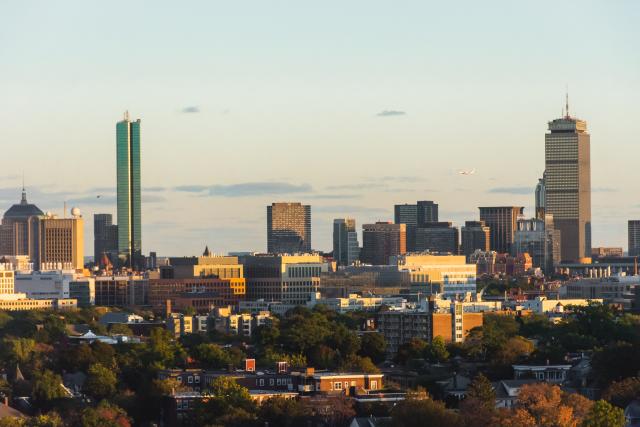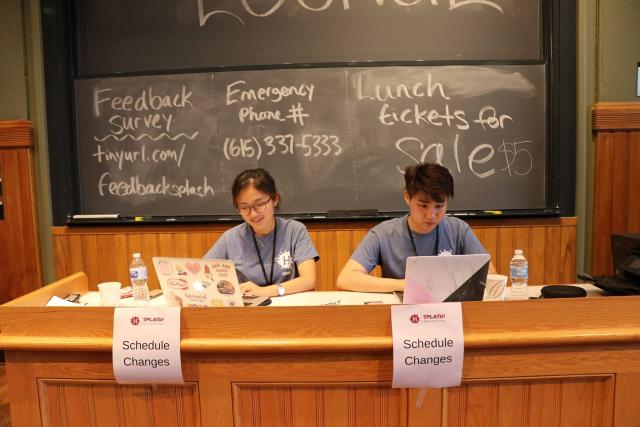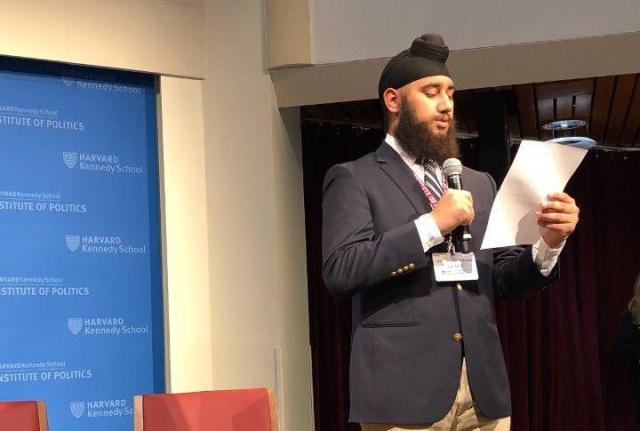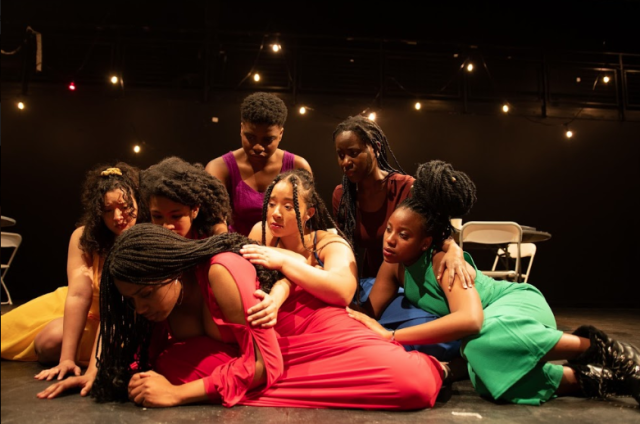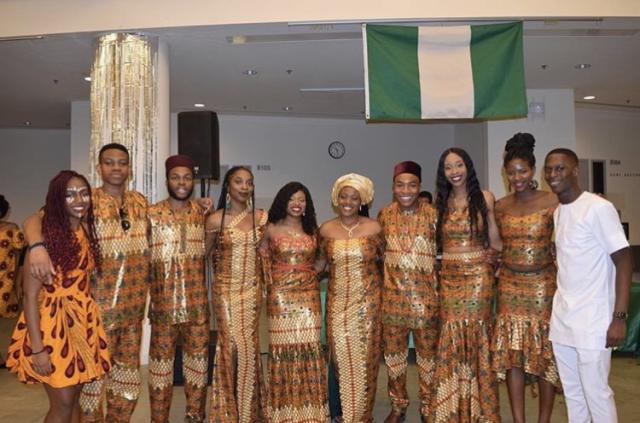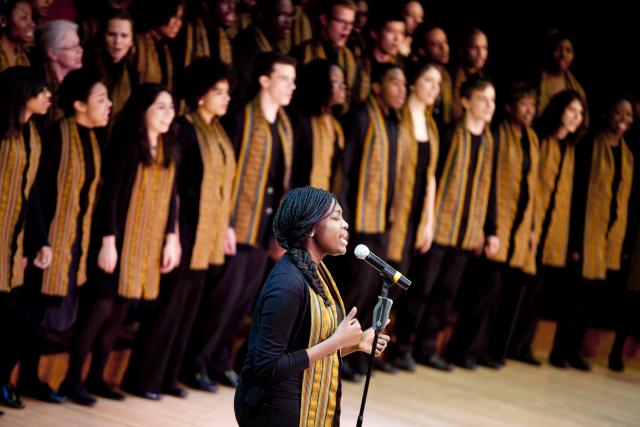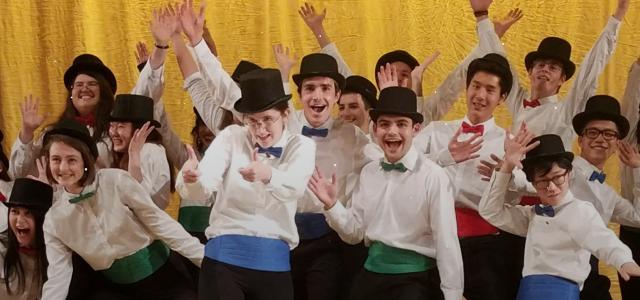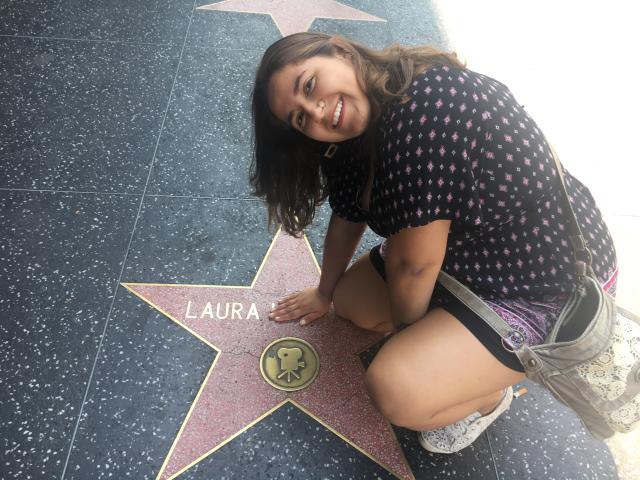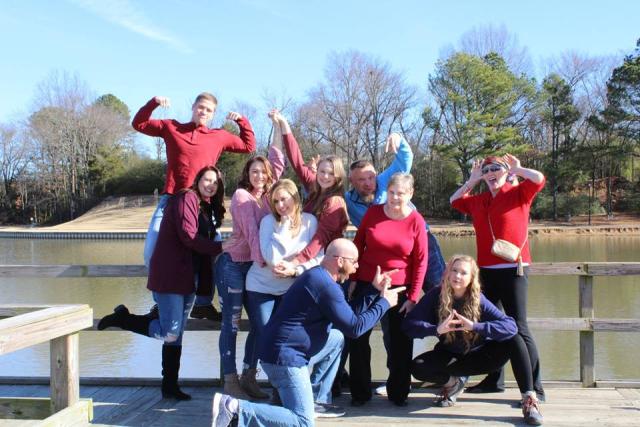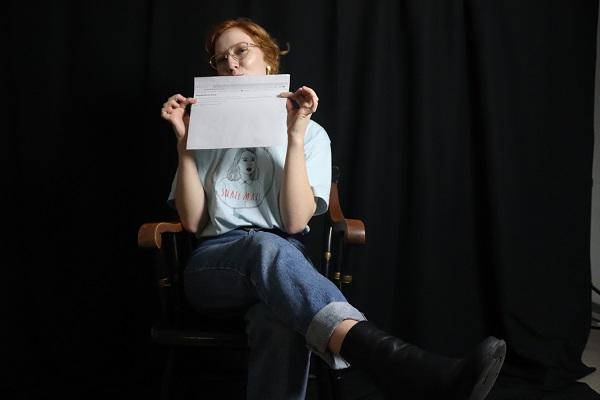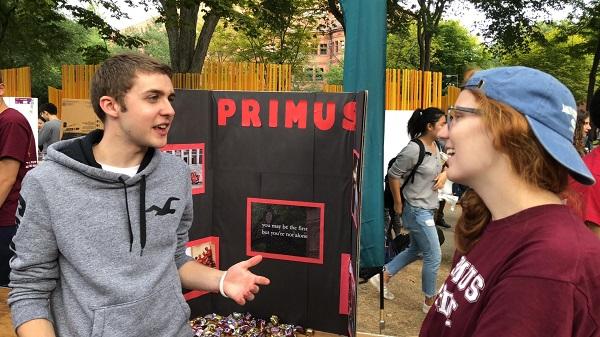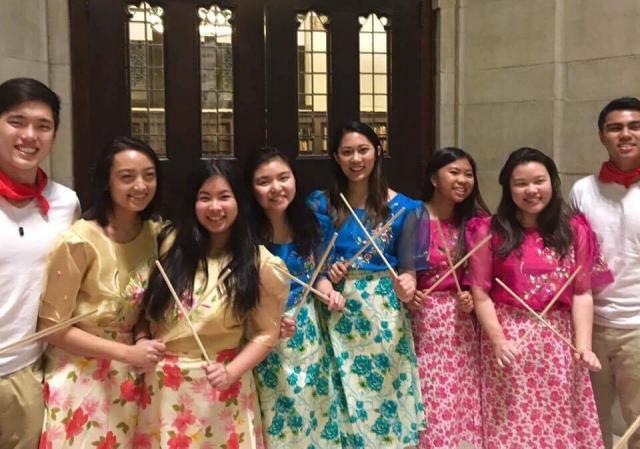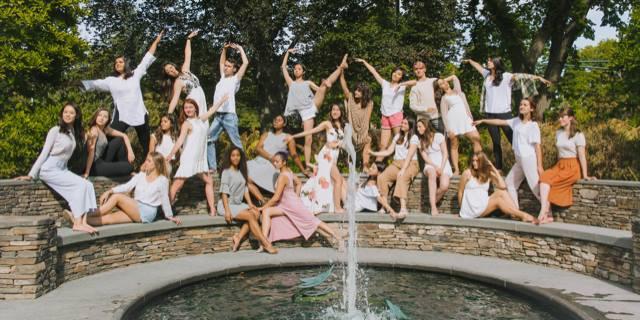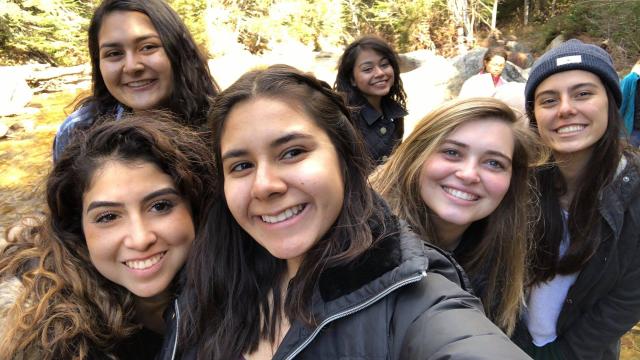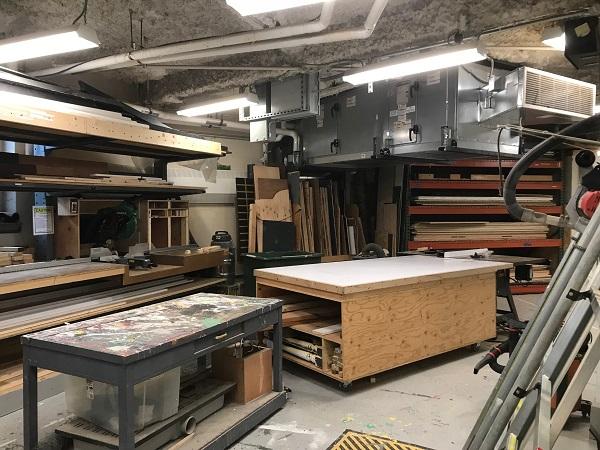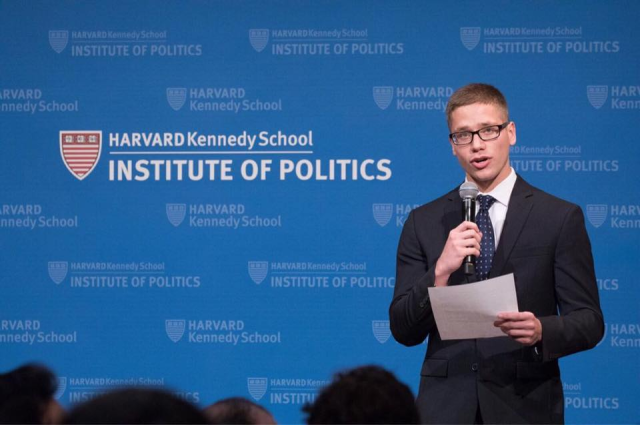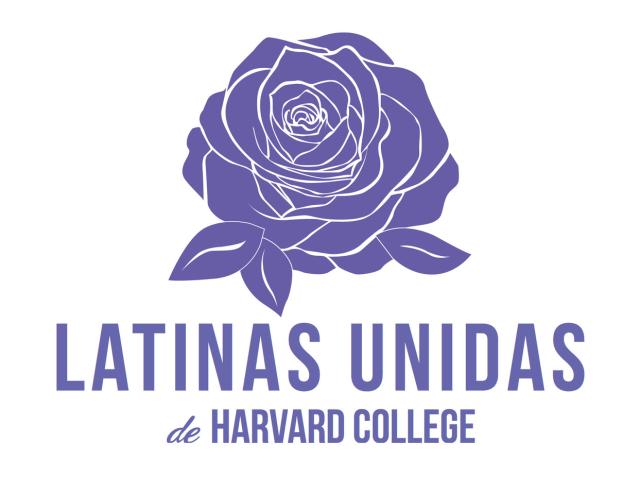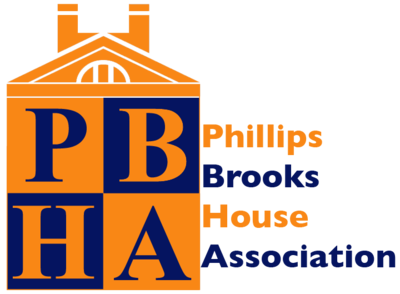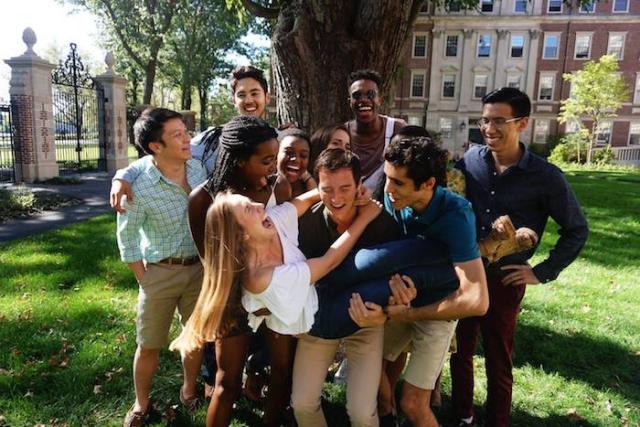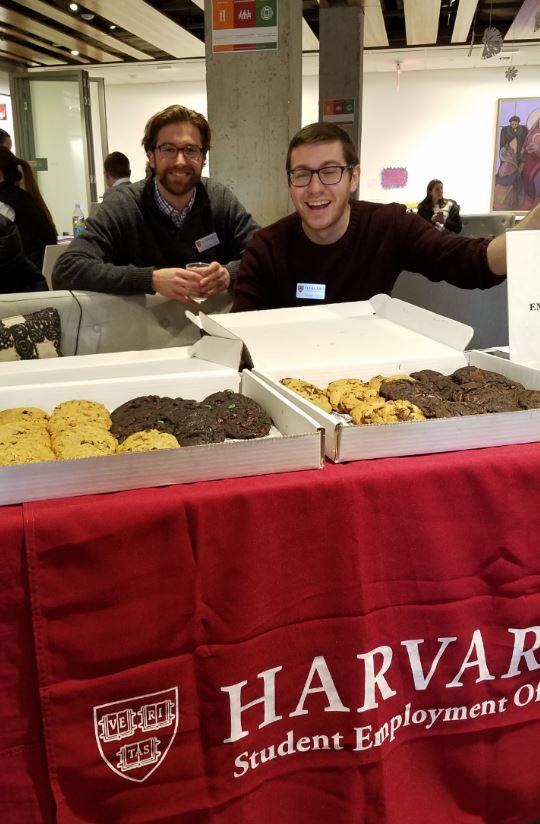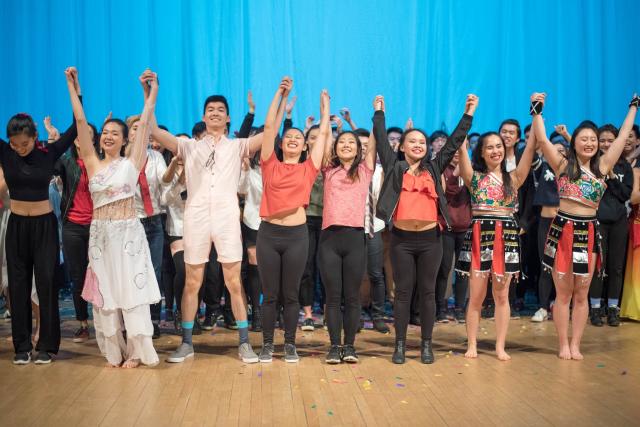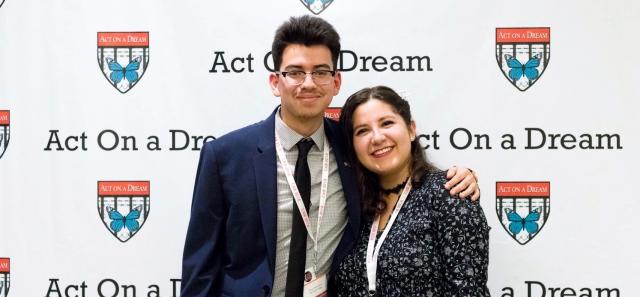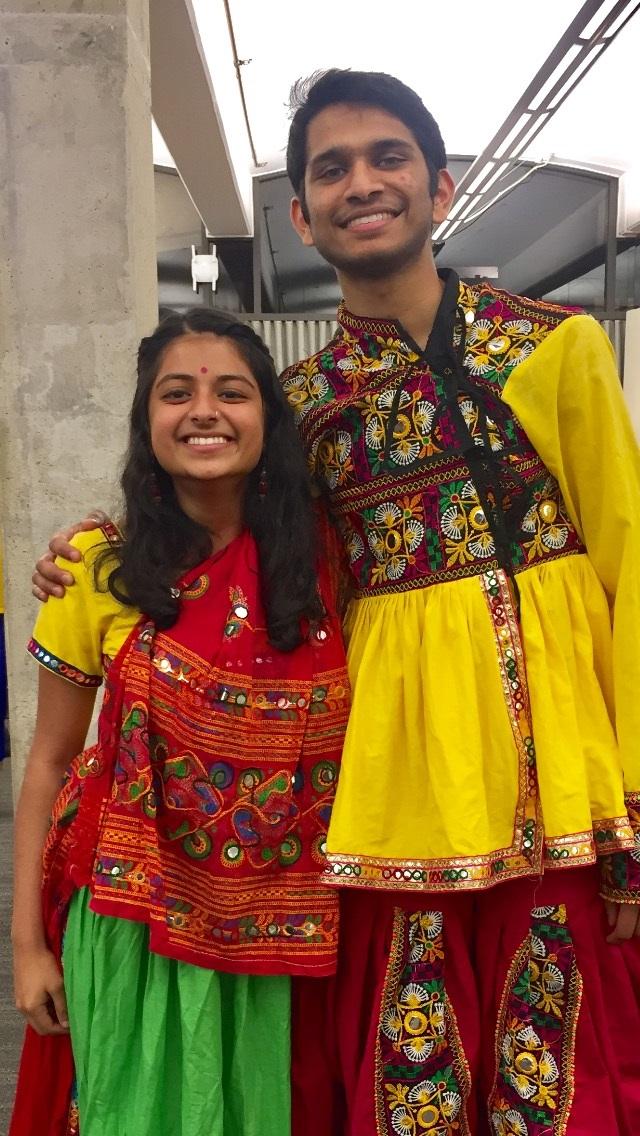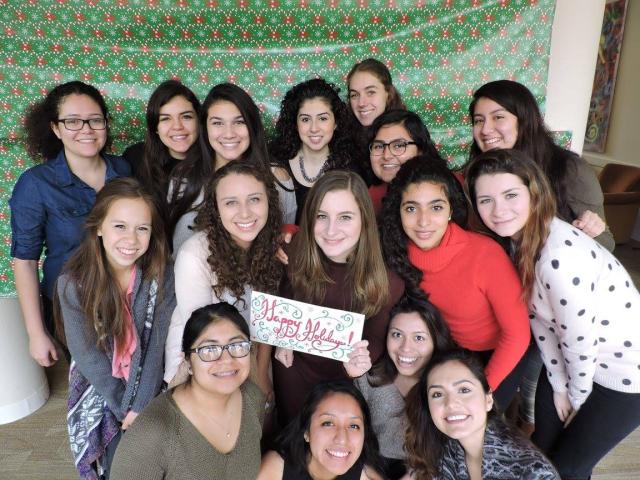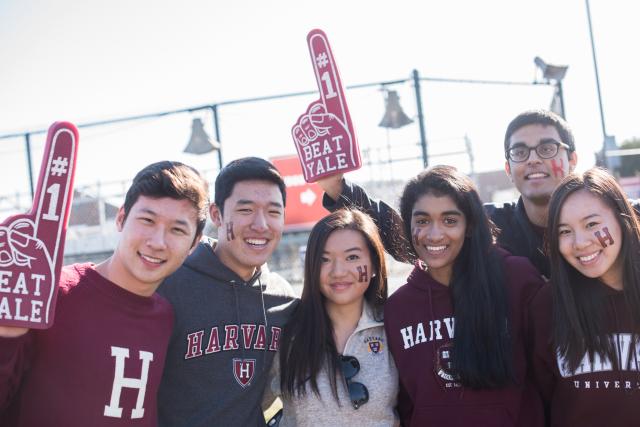For this interview, we reached out to Saul Urbina, a student working in a cognitive neuroscience lab.
Saul is a junior living in Dunster House and is originally from Southern California. He’s concentrating in Cognitive Neuroscience within Psychology and pursuing a secondary in Visual Environmental Studies. His current job is at Boston Children’s Hospital in the Nelson Lab at a cognitive neuroscience lab. During his free time, Saul enjoys hanging out with friends, going to El Jefe’s, and photographing concerts.
Amy Zhao: How did you find your current job? And what do you do on a day to day basis?
Saul Urbina: I got so lucky - I got this job through my freshman seminar, [laughs] it’s a long name, - “When Bad Things Happen Early in Life: Effects of Early Adversity on Brain and Behavioral Development.” I just really liked the material, and the professor was super incredible in everything that he’s done. He was also really, really accessible.
There’s a study that I’m working on now - the name for it is the the Toxic Stress Network, but then the “family-friendly” name is the Healthy Baby Study. [laughs] That’s really funny. It’s a study on resilience that’s exploring why some kids, even though they go through so much difficulty with their family, are doing great while others are not.? We are trying to see what the resilient kids are doing to find out if we can get other people to do the same things. We also look at different parenting styles. The lab really works to make sure the families are well-supported by streamlining access to social services. Right now, we’re working on a website that compiles all the resources for low-income families in Boston - it’s really cool, and I think some of our families will really benefit from it.
AZ: What about this job appeals to you?
SU: I really like the fact that it kind of touches on so many different fields. We pull from psychology, neuroscience, physiology, public health, etc., so you really get a little of everything. And since I didn’t know what I wanted to do last year, it’s great that this study got me exposure to a little of everything.
I also enjoy working with people outside the Harvard community. I actually really, really like that my job is at Boston Children’s Hospital, since it forces me to get out of Harvard, and Longwood is so different from Harvard Square. I’ve gotten to know people within the Greater Boston Area communities, talking to them about how they’re doing every couple months during their lab sessions
AZ: I see that your job also falls under the Faculty Aide Program, which provides funding for students interested in working closely with faculty and their research - can you talk a little more about that?
SU: I didn’t qualify for FWSP because of a scholarship. I still needed money, so I had to keep a previous job. I told the lab coordinator that I would have to work as a volunteer and that I therefore couldn’t do as many hours. She then replied with something like, “Hey, I applied for this thing, and all you have to do is fill out your hours on this spreadsheet to get paid for your work in the lab. ” I didn’t even know that this program existed. I’m really thankful that my lab coordinator went out of her way to find it and make it work.
AZ: So you didn’t come into college thinking that you needed to find research or a job? This kind of developed on its own?
SU: I came into Harvard with a general interest in people, It was mostly because of movies to be honest. I grew up watching loads of movies and TV shows and I really liked talking about how different stories and experiences could have led to completely different endings if it weren’t for certain plot points. Eventually I realized that these are questions developmental neuroscientists and developmental psychologists ask all the time. What’s a person’s journey? Where could it lead? What makes it all tick?
AZ: Was there anything really surprising on the job? Any challenges that you had to deal with and what you learned from them?
SU: When you think of labs, you think of being in an all-white rooms all day,. I knew I didn’t want to do that, which is why I joined a lab that interacted with a lot with families and kids. I was just so surprised with the extent of our interactions. It’s really amazing -- they come in, and my main job is to make sure that the family and children are comfortable, while I direct their attention to the stimuli that we present.
As far as challenges go, there’s a lot of data entry, and managing that can be a learning experience. I knew that it was a really big study going in, but there have been so many times when I come back to work with this huge stack of data entry to get done. Since I’m the only undergrad on the project, all the data entry kind of falls to me - it’s a lot of managing your own deadlines. Since we’re collaborating with some researchers at LA Children’s Hospital,, we need to make sure that the data is available to everyone. Sometimes it feels like you’re going against the clock to get that done.
AZ: Since you’ve been there for so long and probably picked up a lot of learnings, what would you tell aspiring freshmen who are interested in this type of work?
SU: I’d say definitely look into the Faculty Aide Program, because it helps make opportunities like this possible. Then, I’d say when you’re looking for labs, definitely apply to multiple, and use your network. It might feel like you don’t know anyone, but you definitely know someone with who you can at least start a conversation. Contact a previous professor you’ve had, or talk to a friend to see what labs they’re involved in, and ask them to connect you to someone they know there- people are usually open to giving advice and telling you about their own journey.
Another thing is that not a lot of people know about these off-campus opportunities. I got really lucky as a sophomore to get involved with this research. If you want to go into research in the Longwood area, there are certainly ways to make it work.

